Racking up the Life List
- Barbara Seith

- Jul 14, 2025
- 6 min read
Last time I came to South Africa I left with 344 more birds than I came with. Which is ironically is the same number of life birds that I currently have in Rhode Island. This time I got 9 new lifers on the Cape Town leg, 20 in Kruger and 4 at Heathrow Airport while waiting for my flight home to Boston. Here goes:
Black Goshawk - Flew over the car as we passed through Cape Town -- Missed the photo, but first Lifer of the trip.

Cape Grassbird -- a bird that sings a lot but never when perched up. We were lucky to spot it perched up on the Cape of Good Hope.
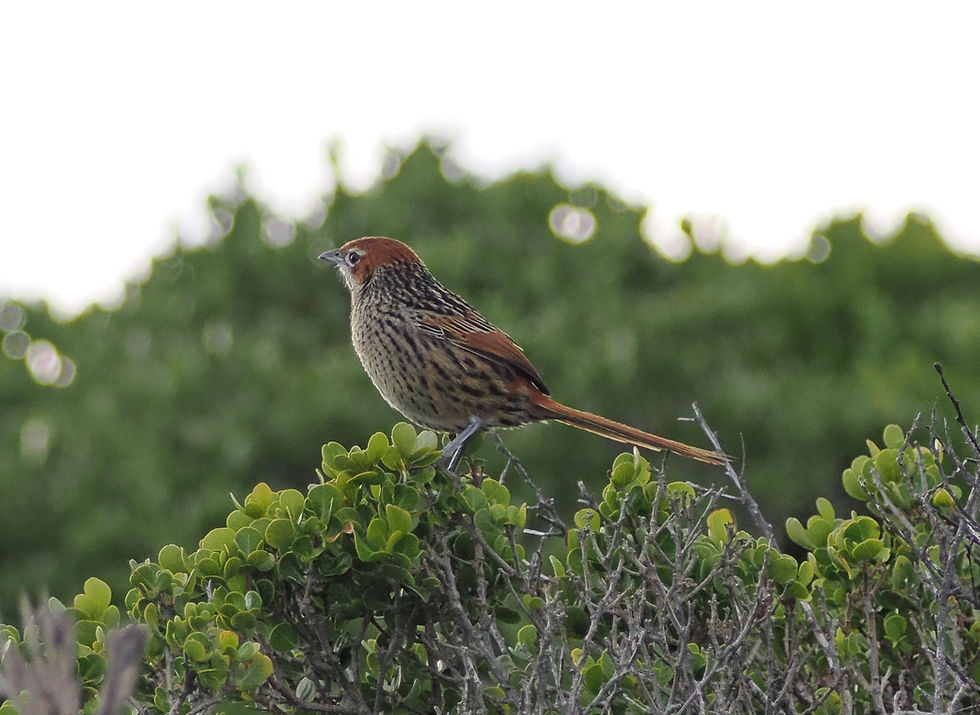
Cape Cormorant -- both Vince and I were surprised I did not have this bird on the previous trip. This time I probably saw hundreds of them at the Rookery at the end of the Cape of Good Hope.
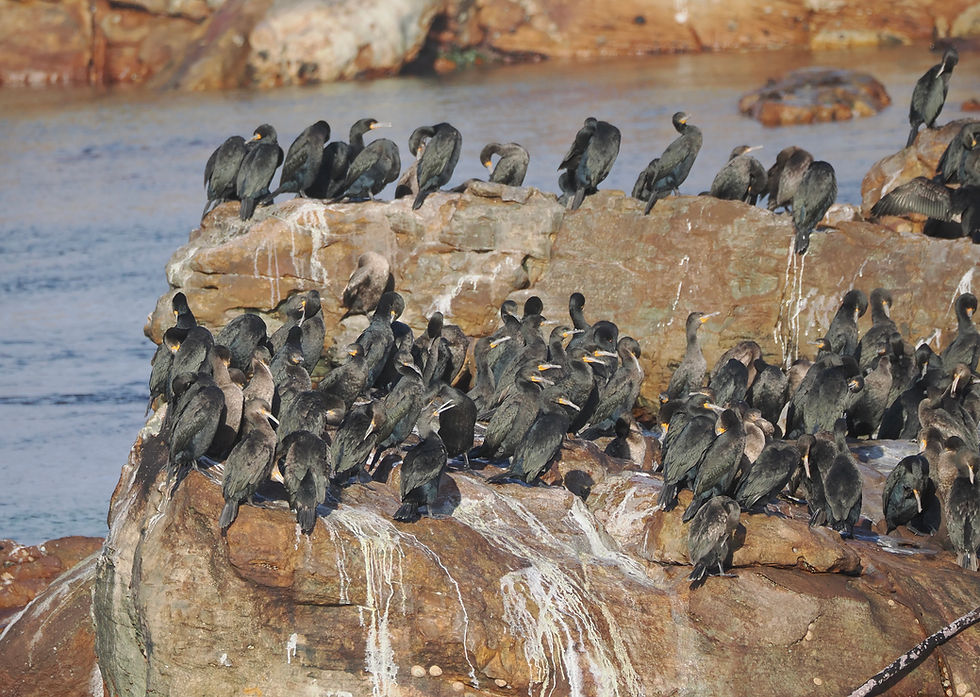
Plain-backed Pipit -- also on the Cape of Good Hope but a little further north at the end of Olifantsbos where there is a little beach with lots of weird seaweed and birds. Missed the photo.
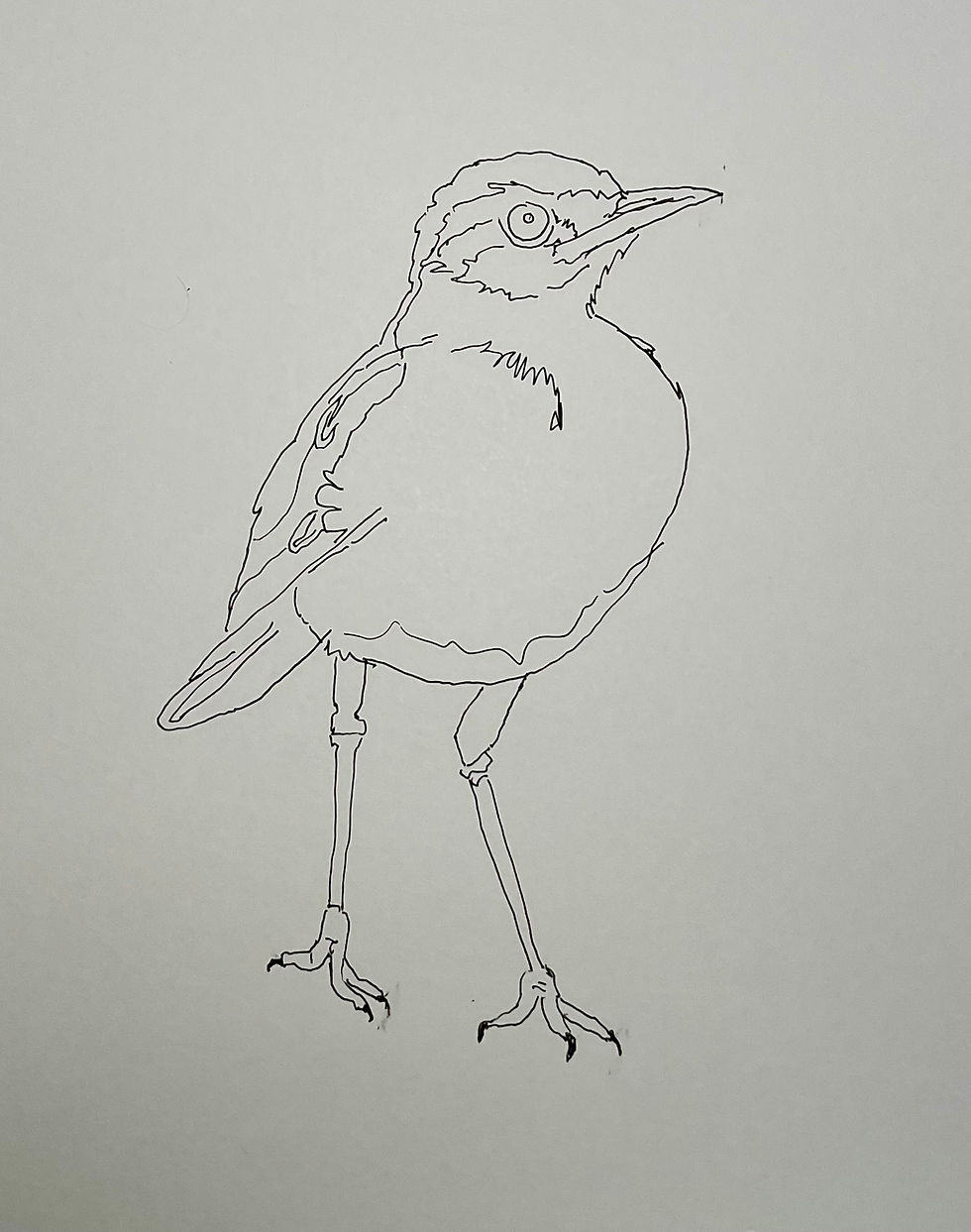
White Stork -- again in Cape Town, spotted by Oli who was job-shadowing Vince. It was on a light pole.

Brimstone Canary -- at Ganzekrall Road north of Cape Town. This was a very unexpected bird. Oli heard it and Vince didn't think it was right -- but then we saw it. Oli is a keen birder. We saw two more at our next spot -- which is even weirder, clearly this species was around!

Red-chested Flufftail - we heard this bird a LOT, in fact there were two of them, never saw it. It is small a difficult to spot. Lots of other birds (including the other two Brimstones).
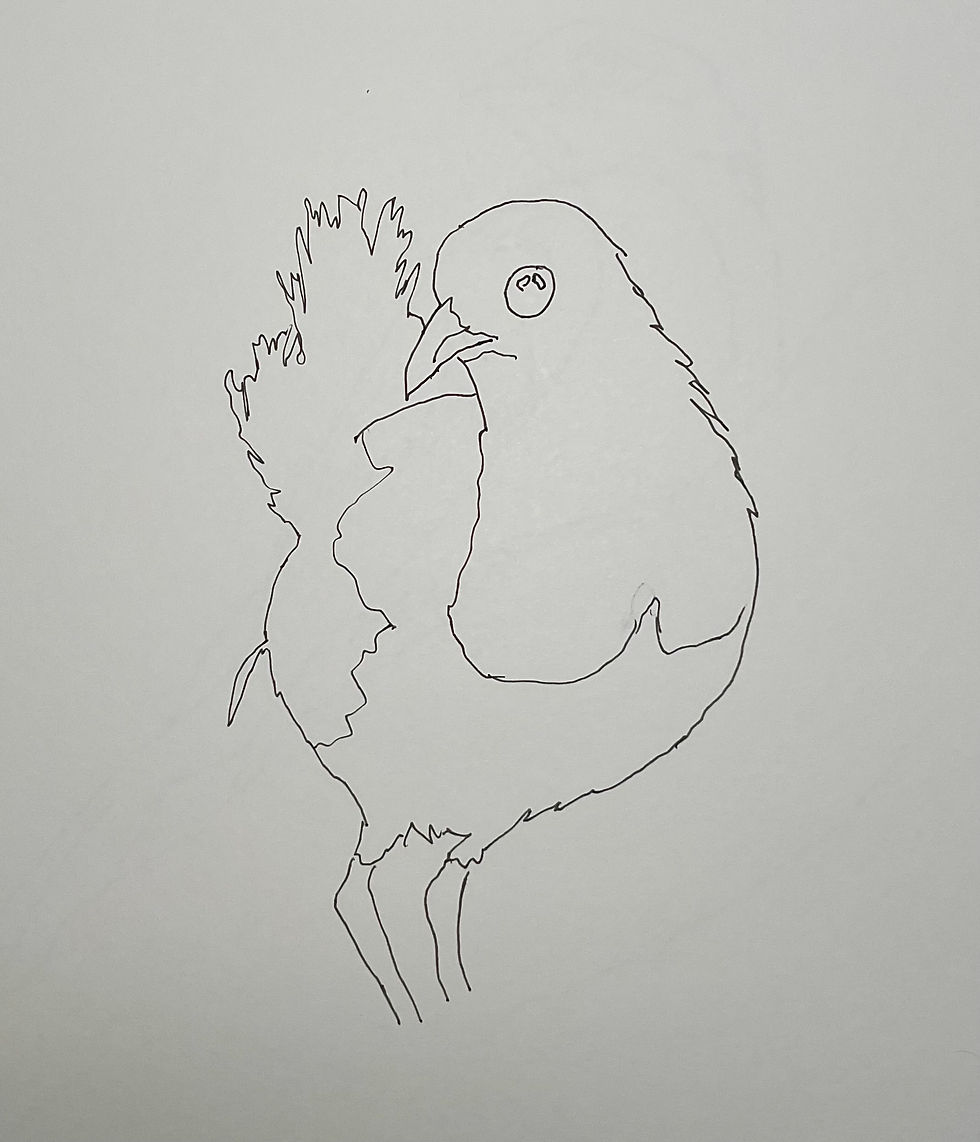
Chestnut-vented Warbler - on the way out to the Seeberg Bird Hide at West Coast National Park, this bird was singing away, on the way back I got a photo. They call it a "Tit-babbler" in South Africa. Many of the names are different than the ones they use in eBird.
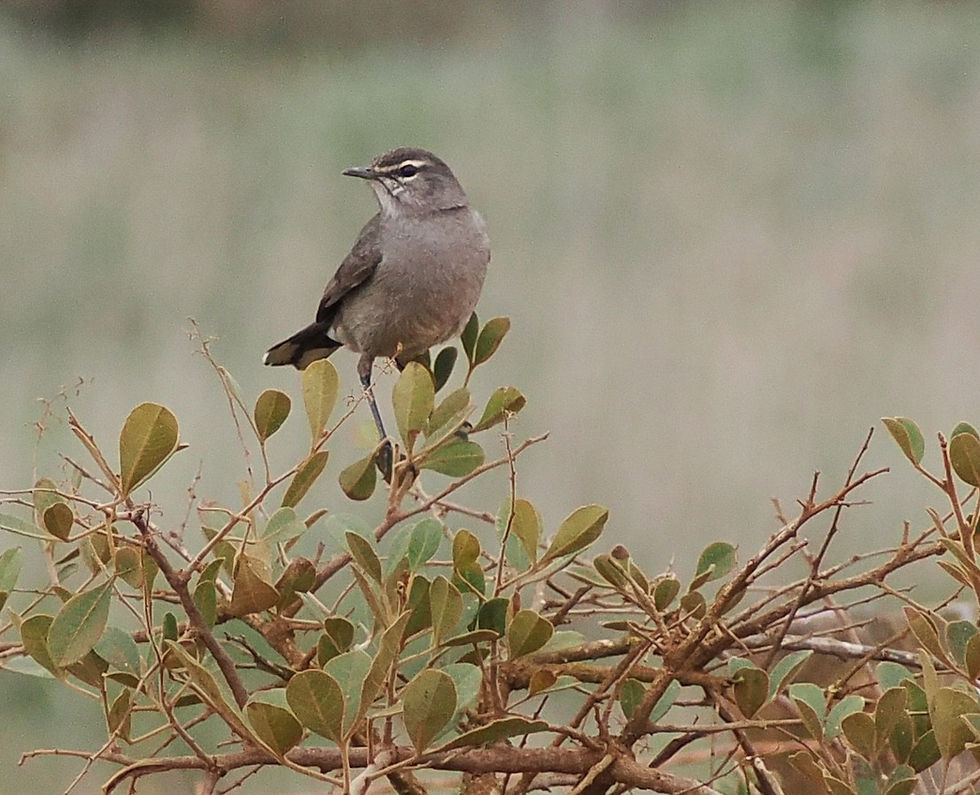
Eurasian Whimbrel - this is not an official Life Bird, but will likely be a "couch" bird (a life bird "earned" while doing nothing, but because of reclassification) They were viewed from the Seeberg Hide and unlike the Hudsonian Whimbrel which we have in the US, South Africa is the wintering grounds for the Eurasian Whimbrel.

Gray Tit - on the Ocean side of West Coast National park it was singing away. We caught several quick views as it was racing across the road, but time was running short and we did not have the luxury to linger.

On to Kruger & the major Ramble
Yellow-bellied Eremomela - lovely little bird that greeted us as we were leaving the airport. Small and (surprise) yellow bellied -- I love how this word is pronounced. eh-ruh-MOH-muh-luh. "eh-ruh-MOH-muh-luh. The emphasis is on the second syllable, "moh." Trust me it sounds beautiful, particularly with a South African accent
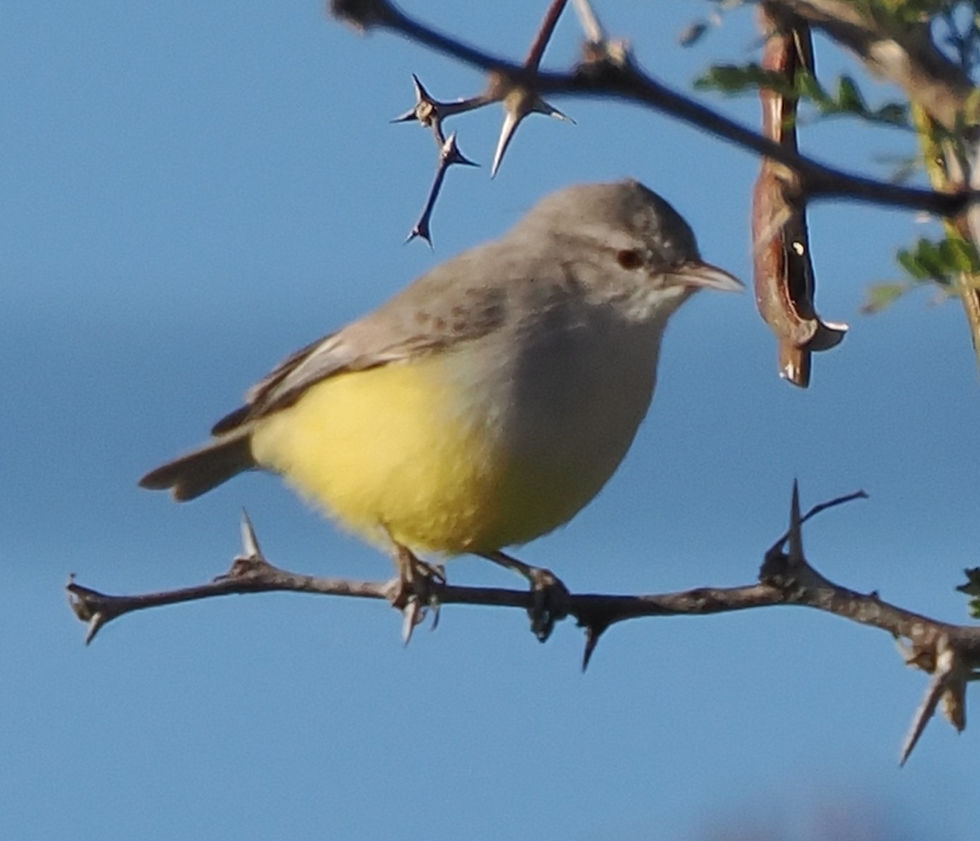
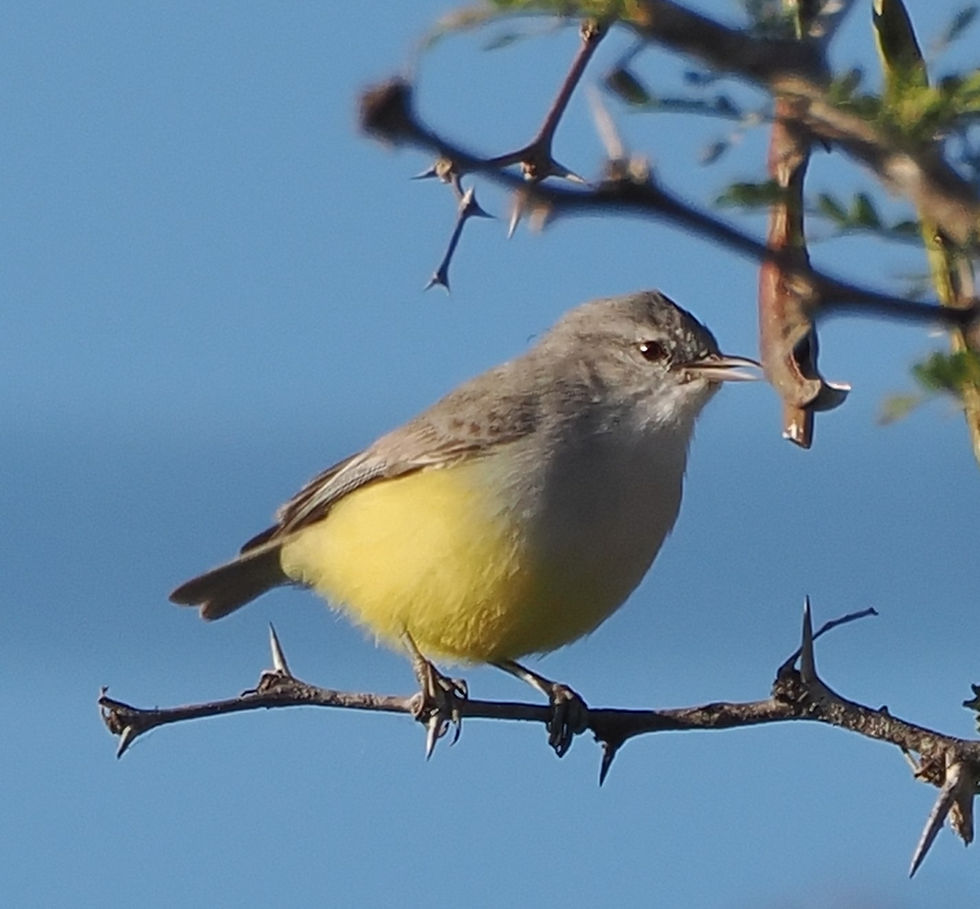
Little Bee-eater - we saw this species a lot and finally got good photos on when we were in the Olifants area. This one was extremely cooperative and we actually heard its beak clap shut when it caught a bee.
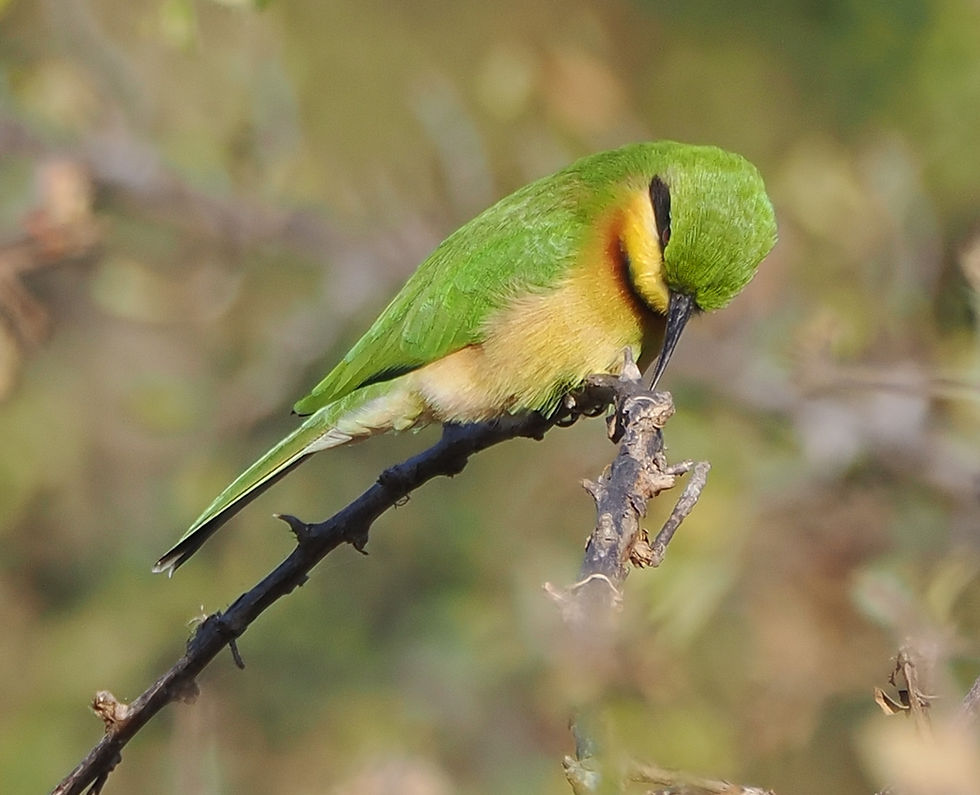
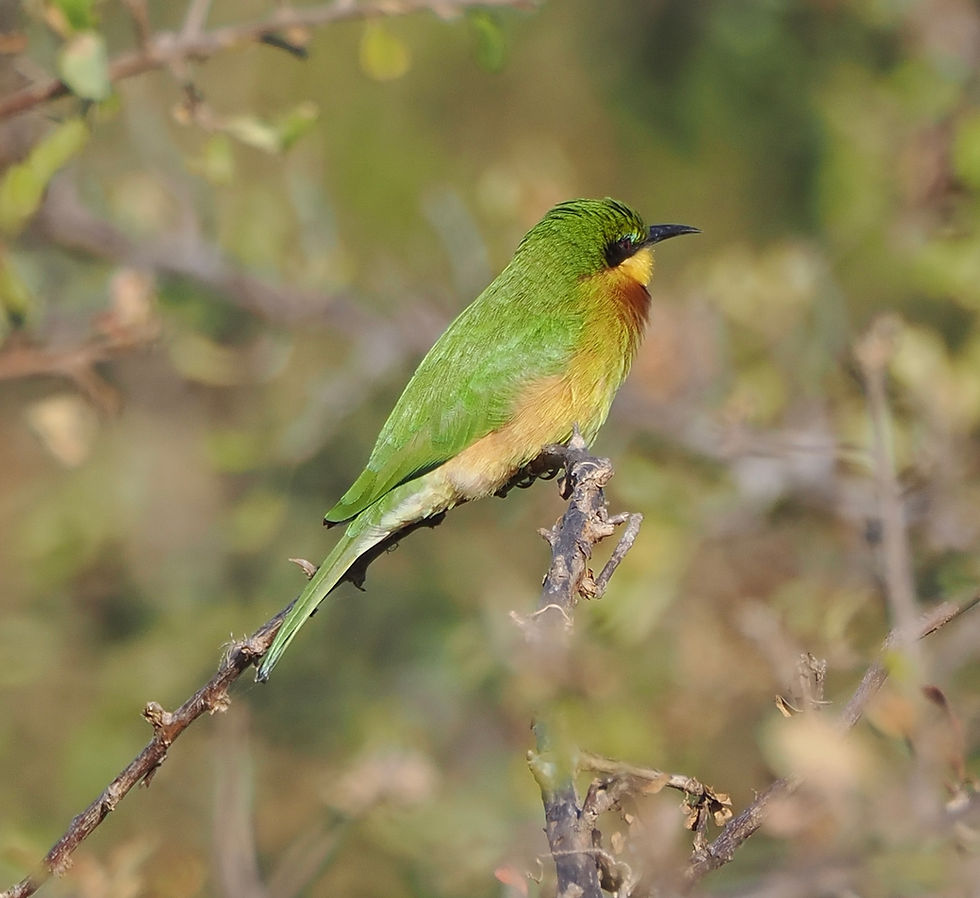
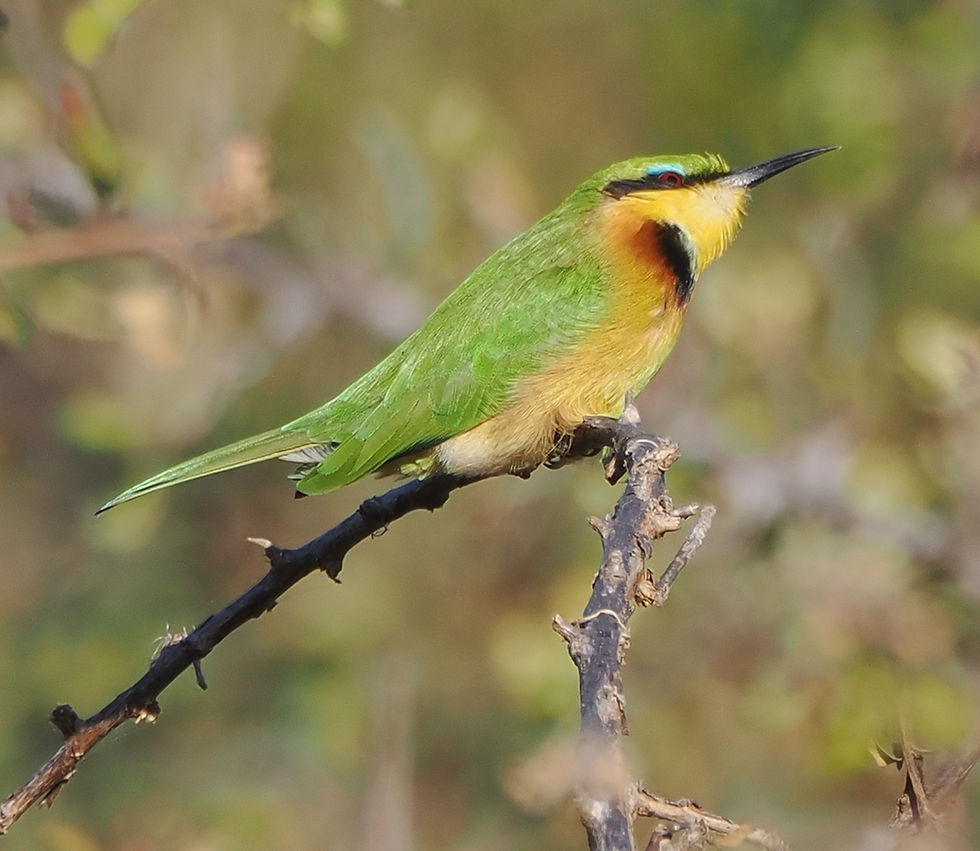
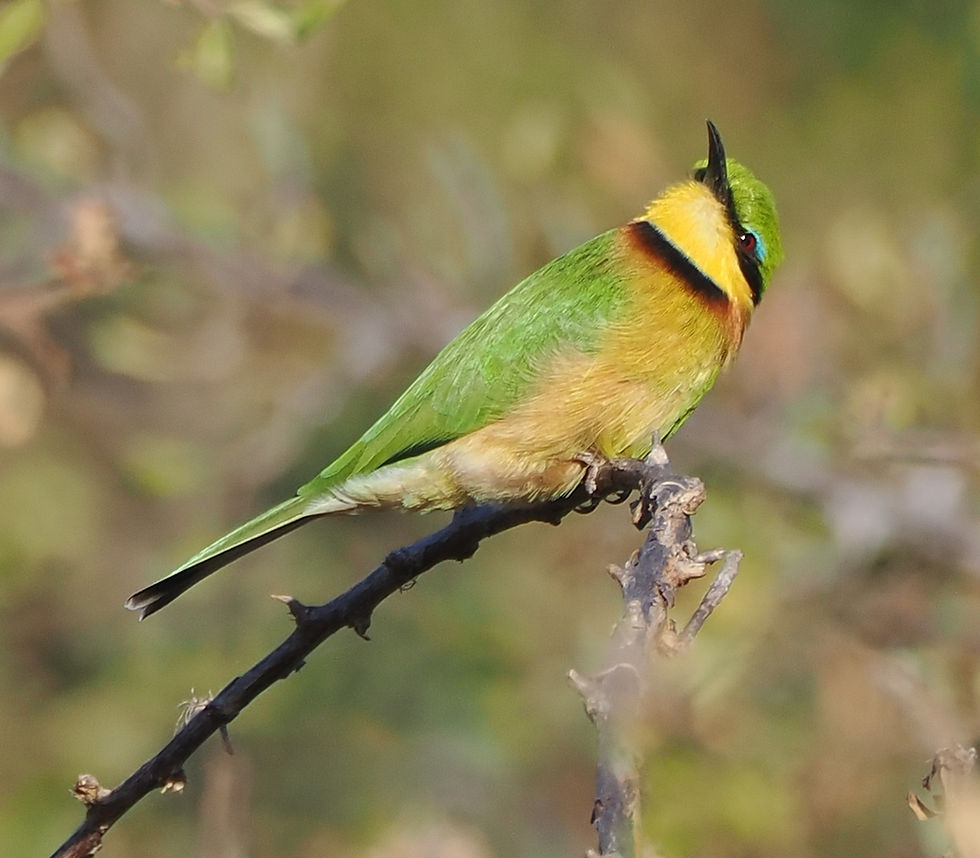



Stierling's Wren Warbler - just heard/saw this bird fleetingly on the way up to Satara on the first day. Wish I had gotten a better look.

Yellow-throated Bush-sparrow - saw this species three times at waterholes or rivers. As you can see it blends in to the background pretty well, so it's tough to photograph.
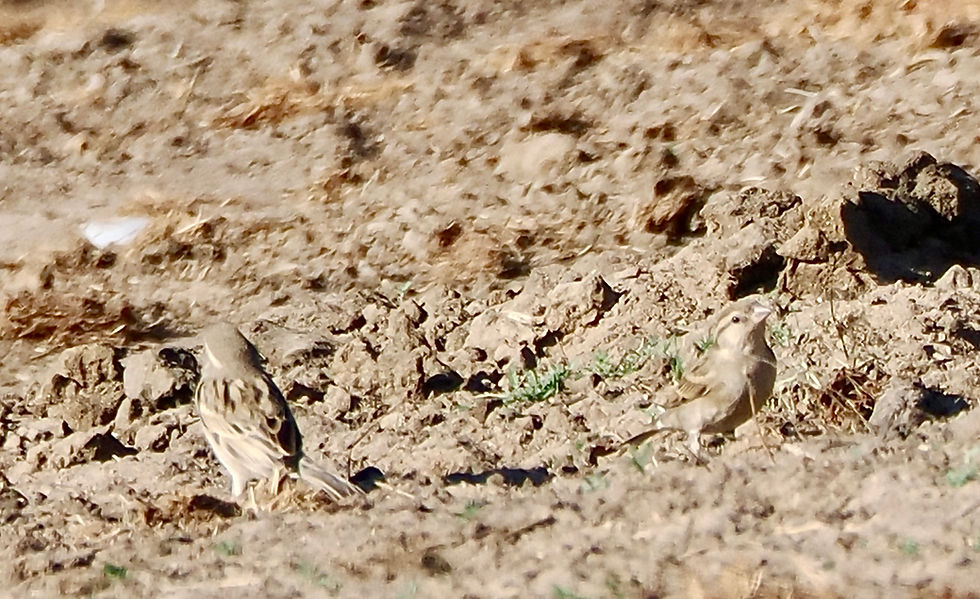
Bennett's Woodpecker - the first of the 4 expected Woodpeckers that we saw on The Ramble. It has more spots than streaks. We saw it just outside of Satara Camp.


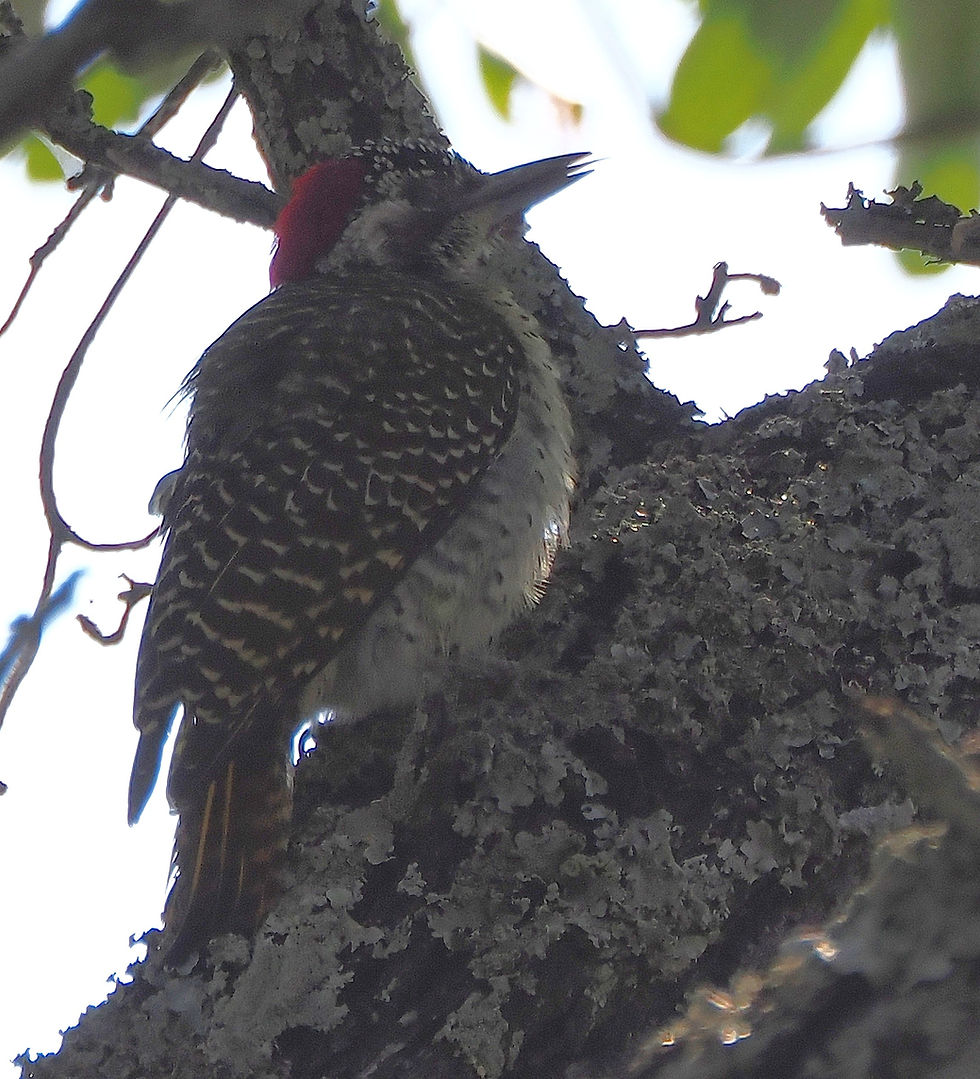
Tambourine Dove - had this species only once, early on our first full day near the dam. It was a quick look and was hoping to see it again -- no luck.

Village Indigobird - was very excited to see this species, my first Indigobird with a finch-like bill. The three species are tough to tell apart --
Village Indigo - Pink/Red Bill, Red/Pink feet
Dusky - White Bill, Red/Pink feet
Purple - White Bill, White/gray feed

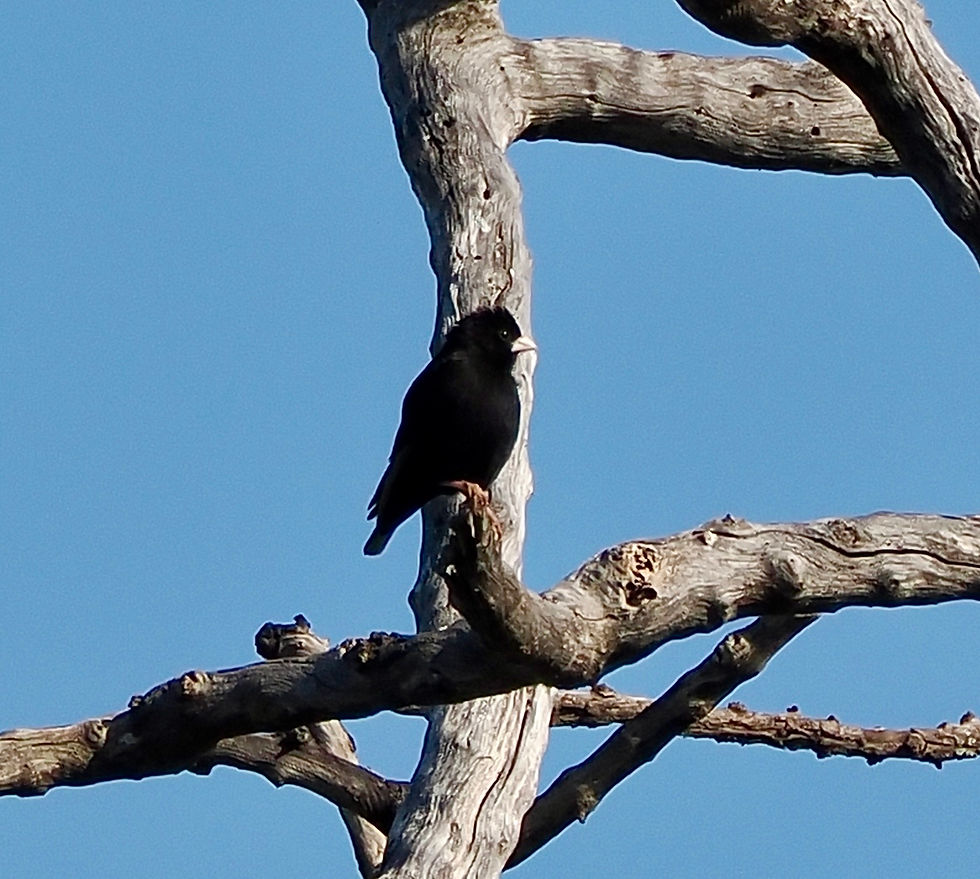
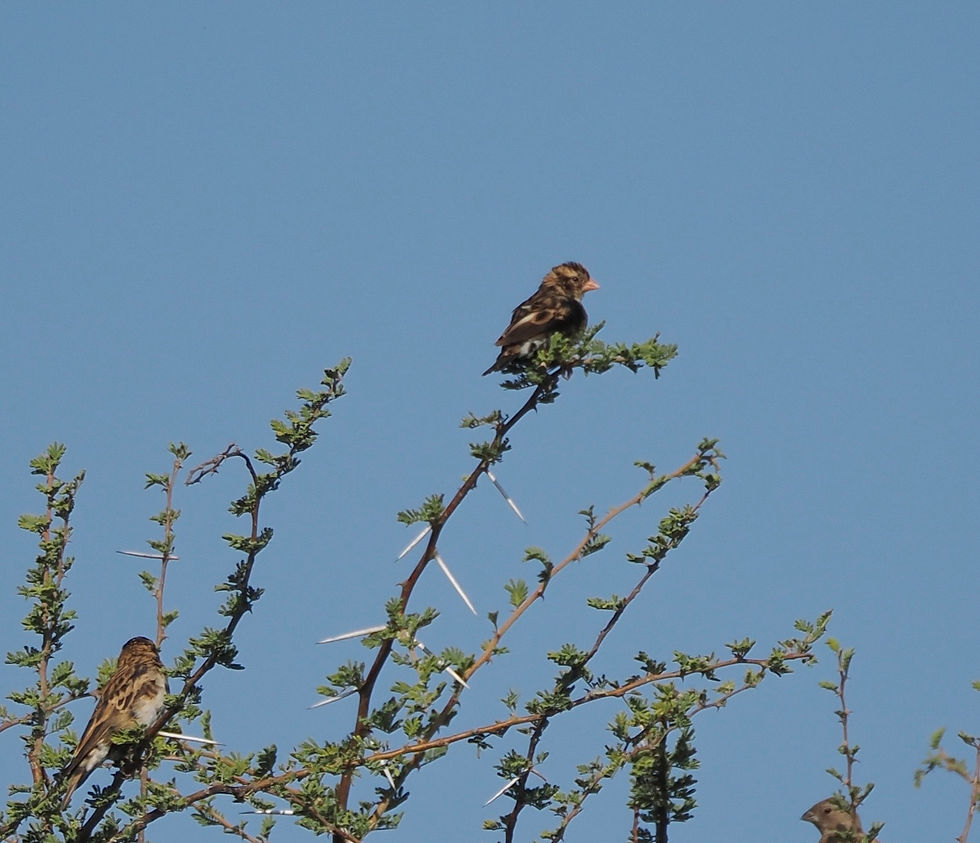

Verreaux's Eagle Owl - We saw these several times near Letaba Camp up to three at a time. They are large beauties and I love their pink eye-lids.


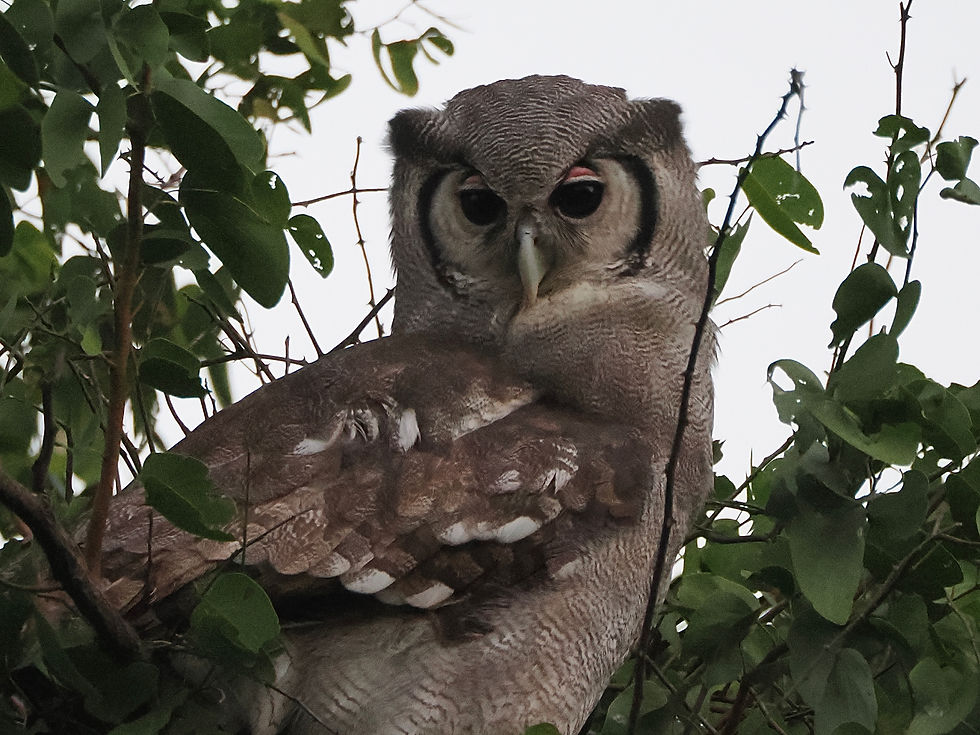


Little Sparrowhawk - Andrew spotted this one in the Letaba Campground. It reminds me of the Sharpshin Hawk. Very intense looking little hawk. It was very cooperative.
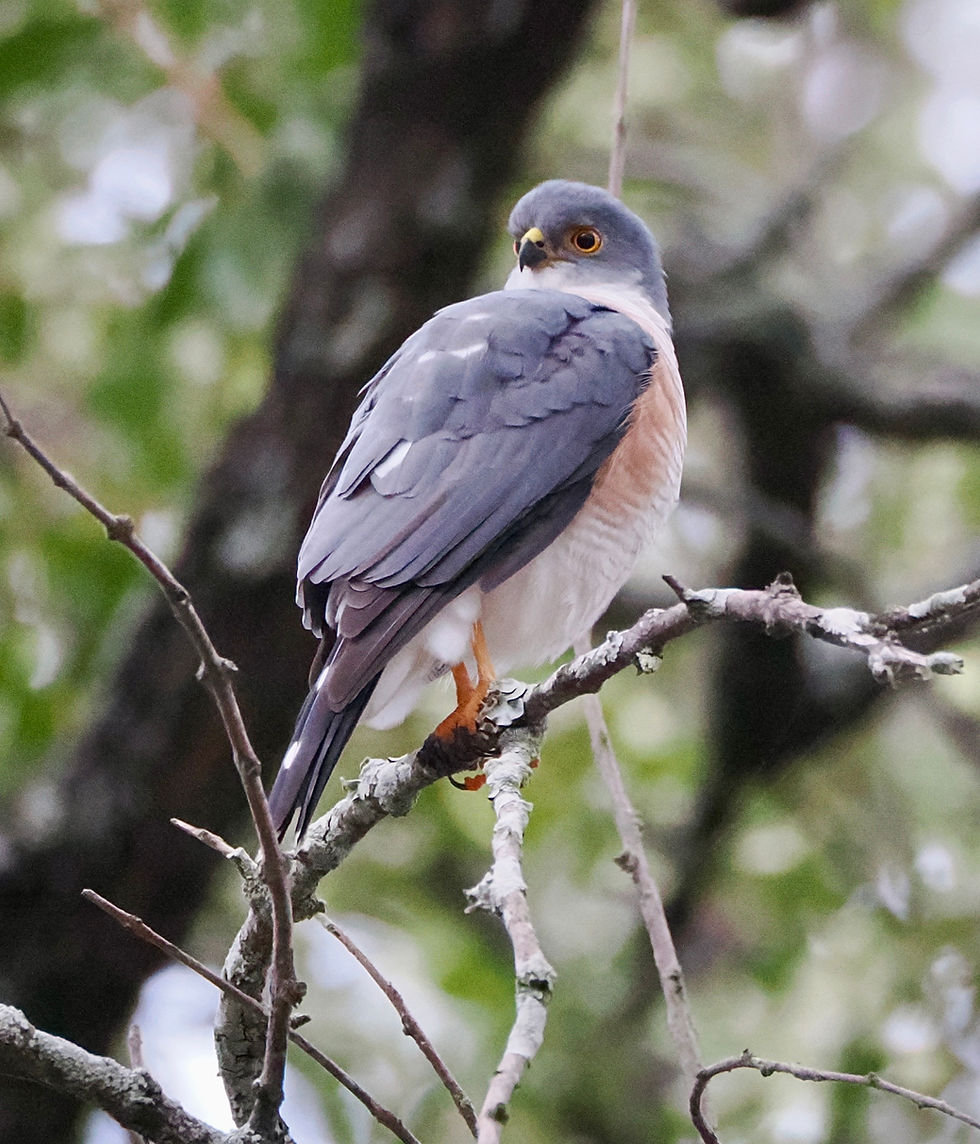
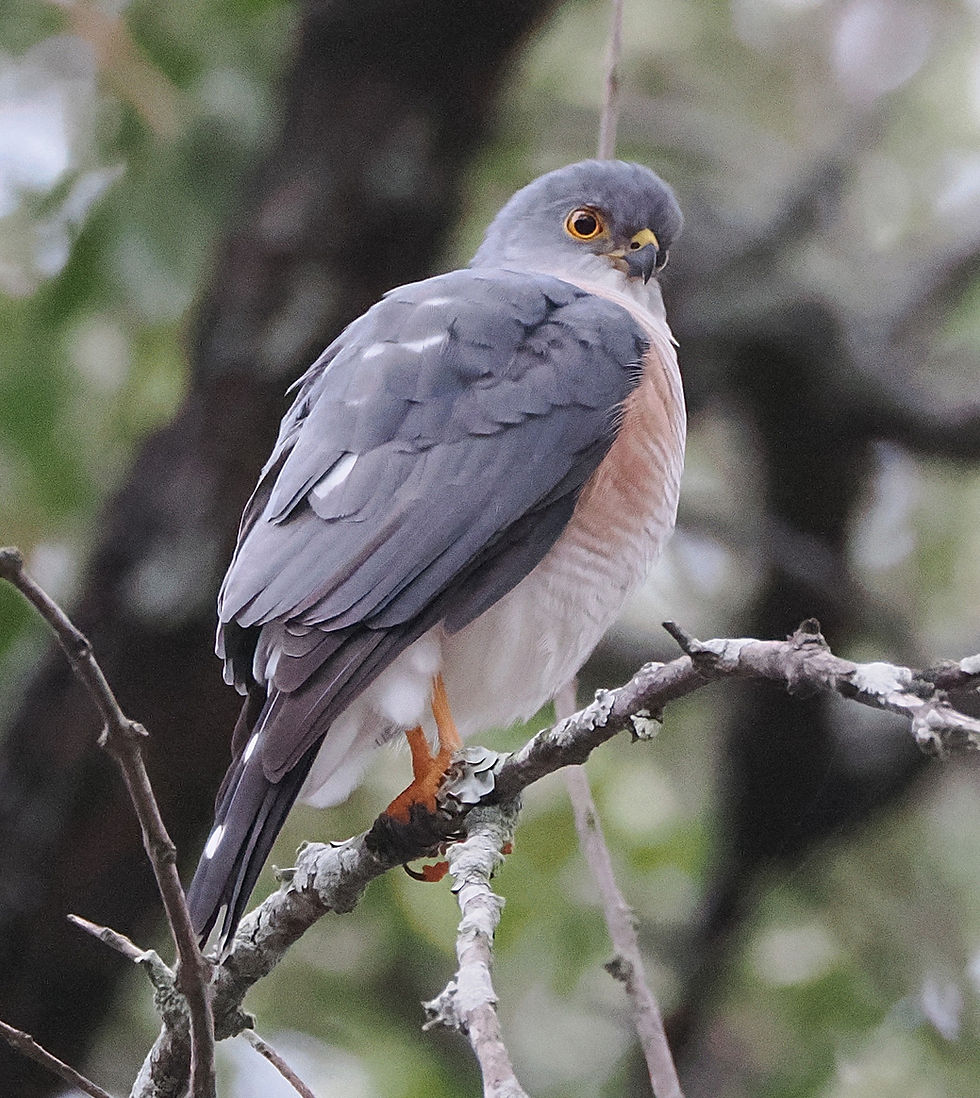
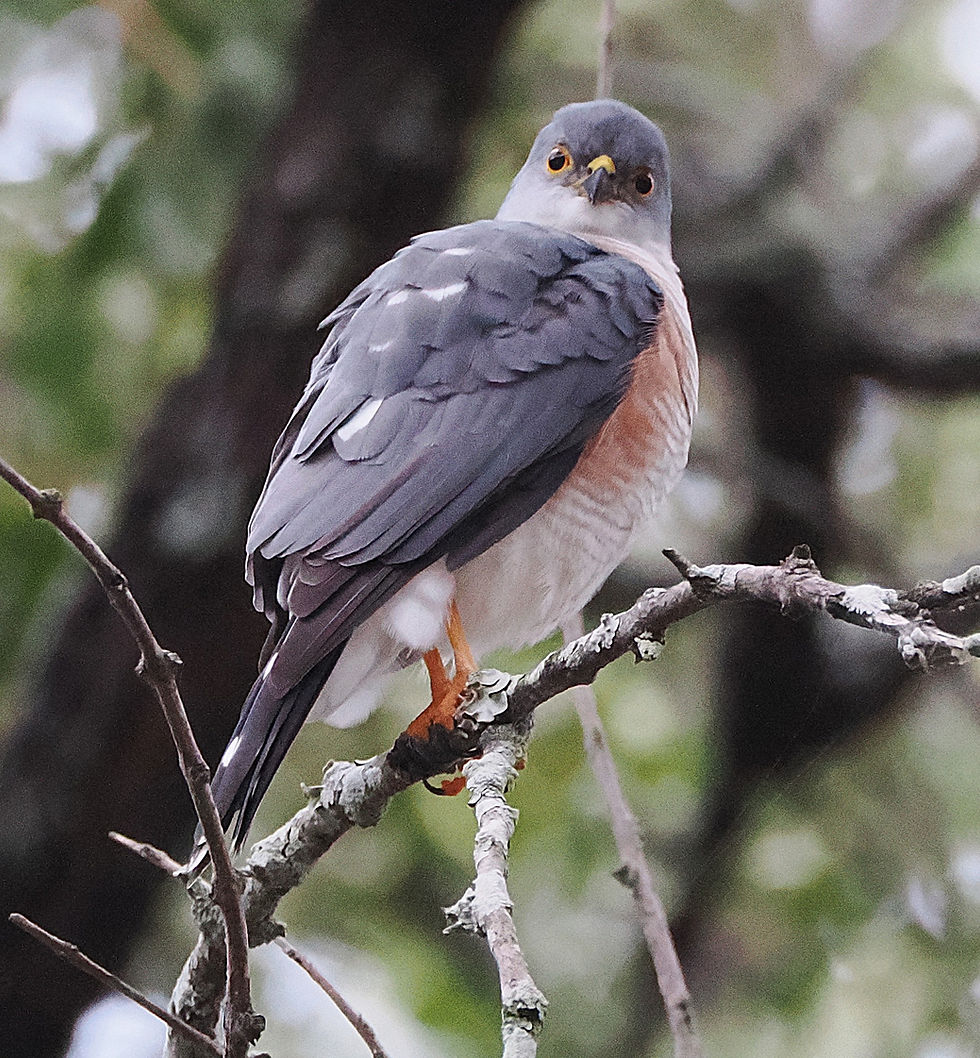
Double-banded Sandgrouse - They came out in numbers in the evening in the Shingwedzi riverbed. Love their Yellow Wattled eyes.
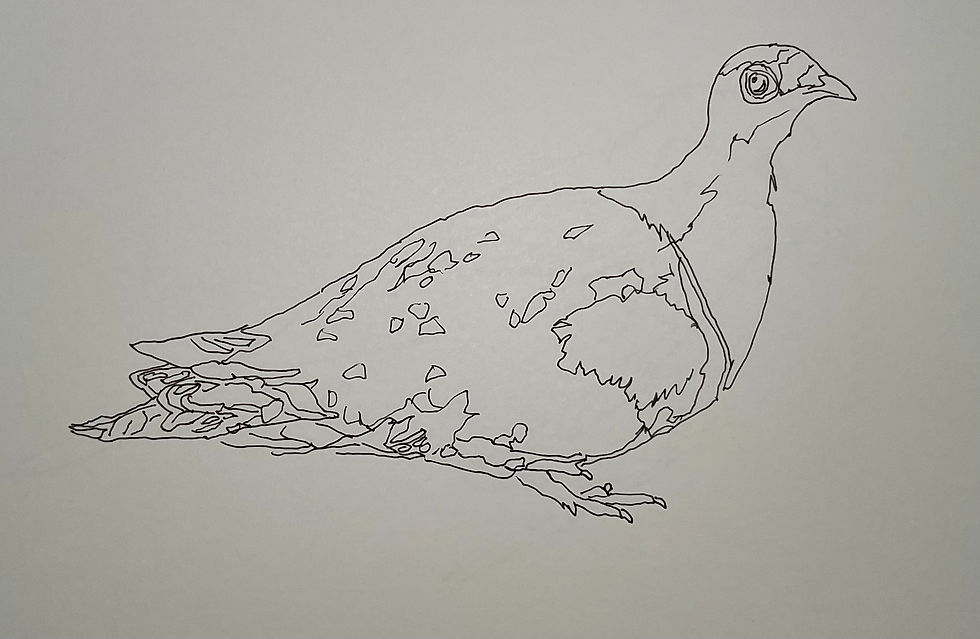
Meves's Starling - Just when you think you've seen all the Starlings, another one shows up -- This was the furthest north of my Lifers. Not! This one have a more purply blue plumage and a black mask through the eyes. It's a beauty.

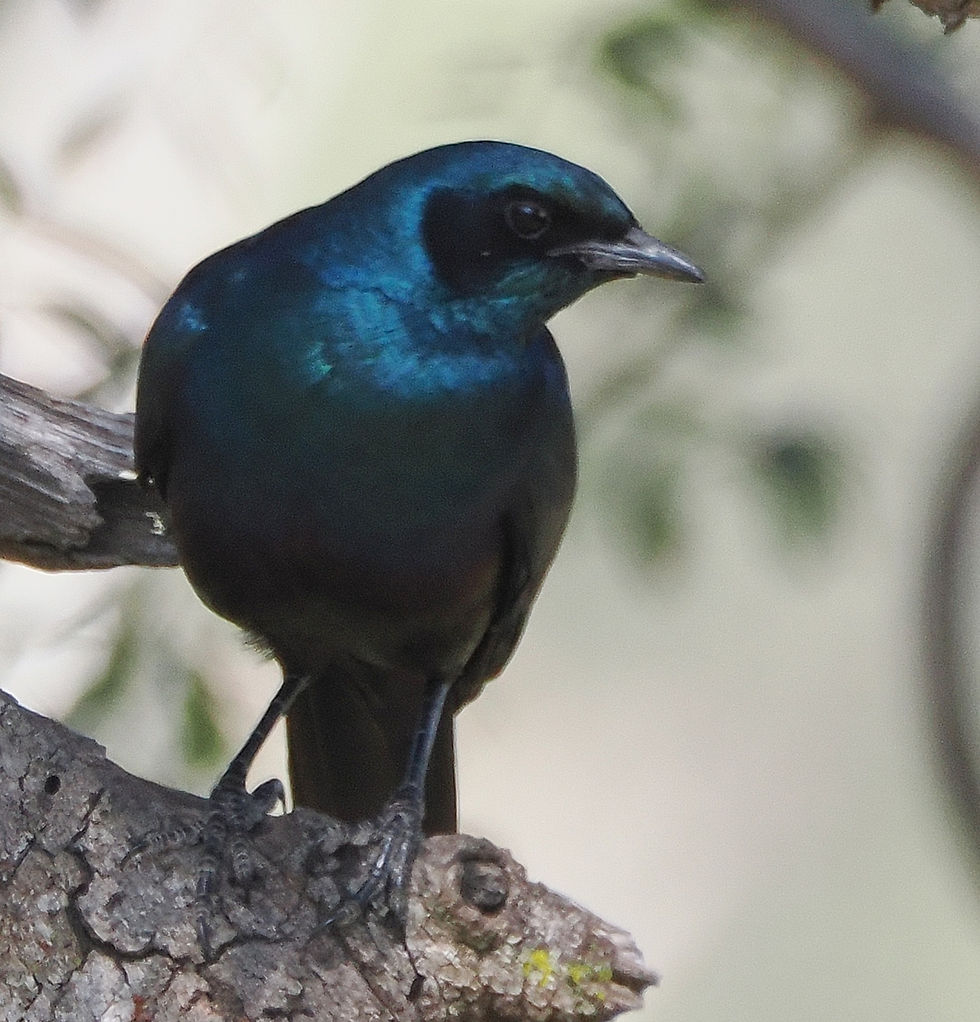

Dusky Indigobird - our second (out of a possible three) Indigobird Pinkish/white bill, Pink feet. On day 7 -- we were hoping to score the Purple one too -- no luck!
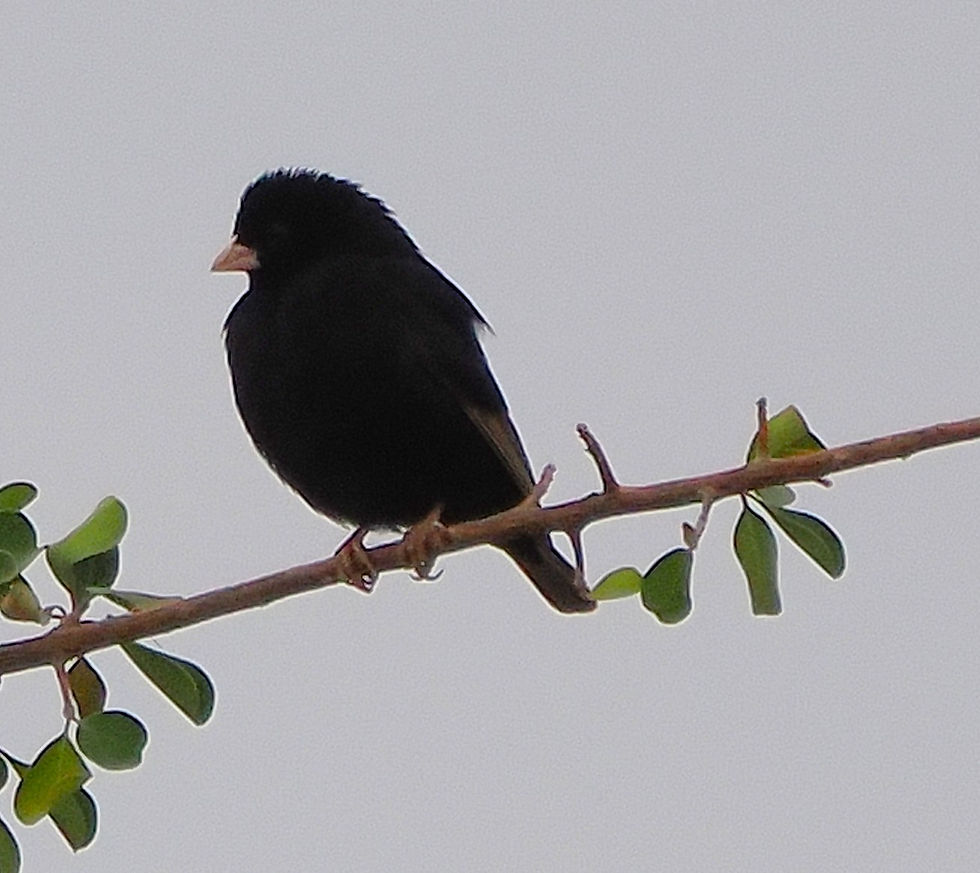
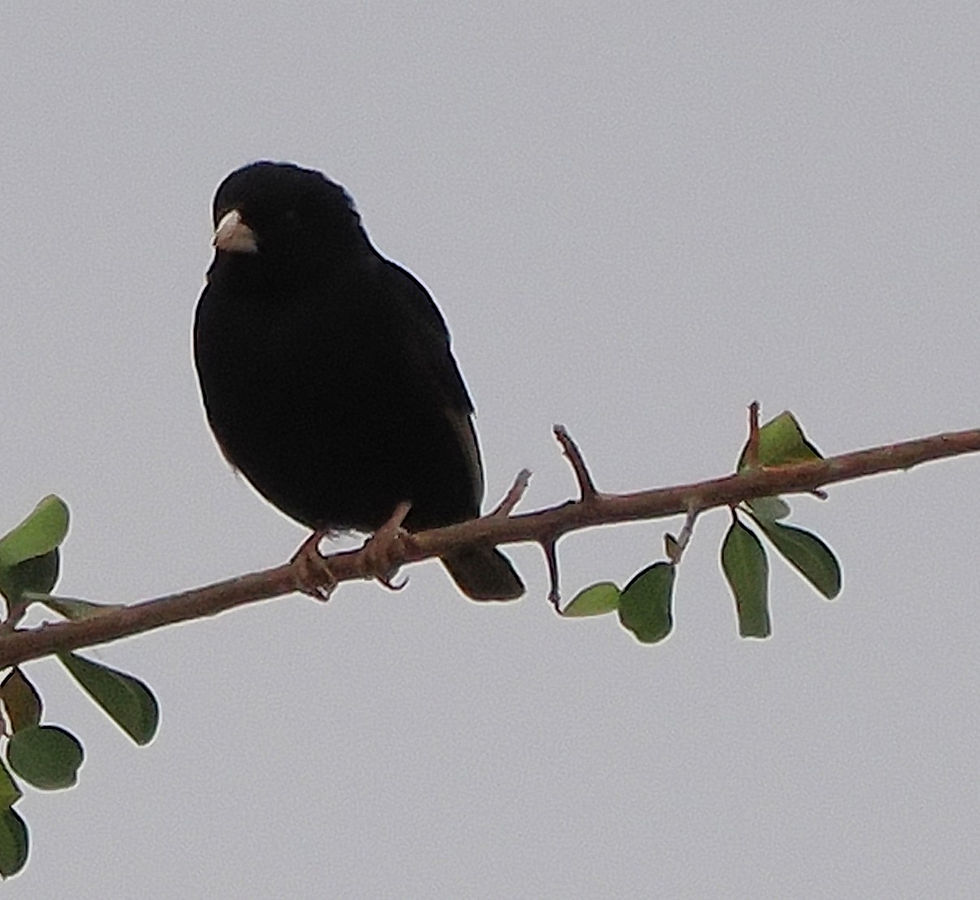
Black-chested Snake-eagle - flying over a cement waterhole for Elephants. Wanted to see this bird for a long time. Lucky to be in the position to photograph it, but Andrew is excellent at setting me up for that.



Scaly-throated Honeyguide - We heard two of these birds on the back side of Shingwedzi during out evening drive. They were singing to each other across the road.
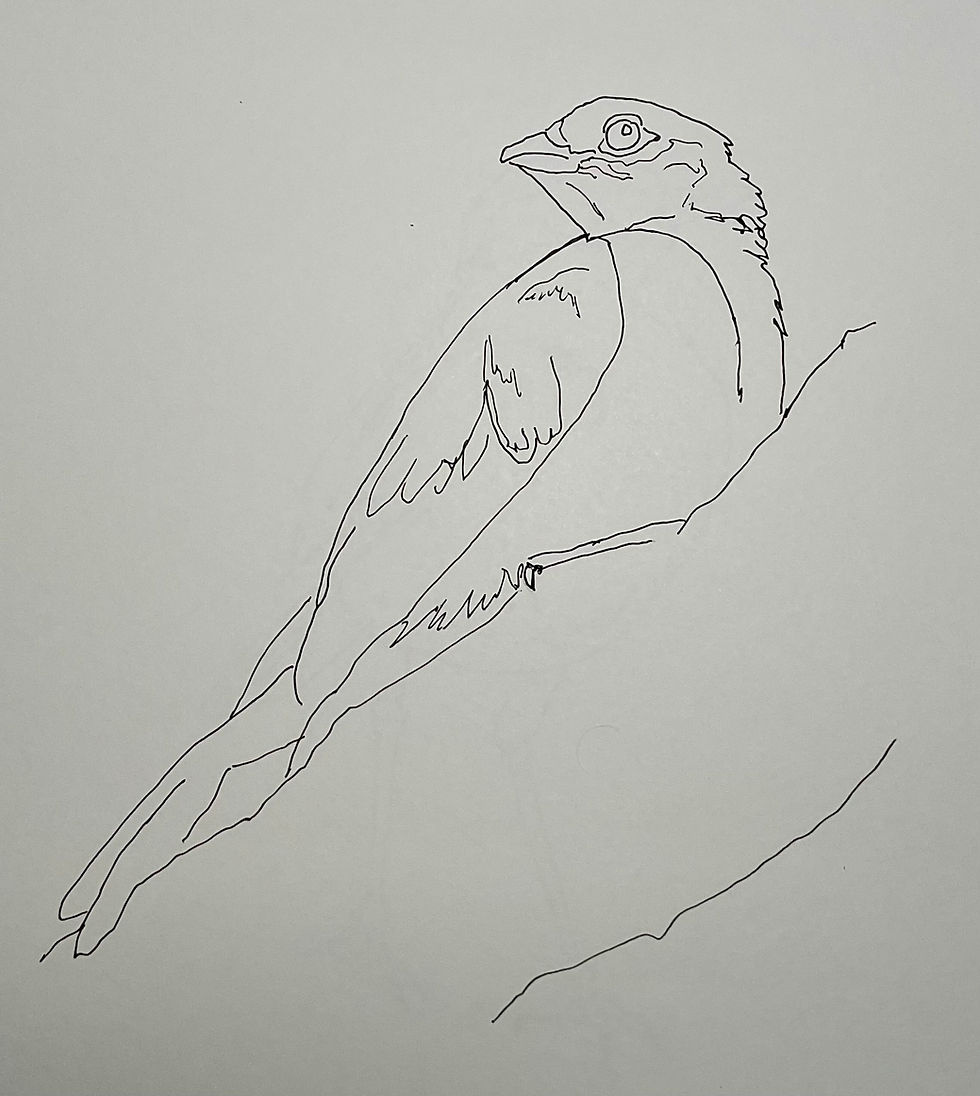
African Black-headed Oriole - we saw two of this species two days apart. Both times, they flew across the road and into the bush, so no photo. But at least we got to see it twice...

Square-tailed Nightjar - I was woken up with the churring of this bird @4:30 in the morning. It was still dark so I did not see it, but there was no doubt about the vocalization.
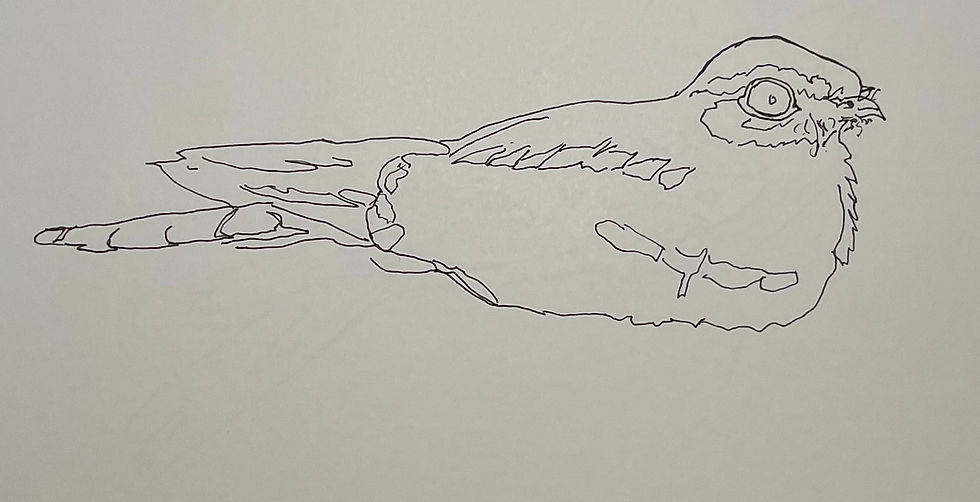
Pel's Fishing-Owl - A jewel we knew we could get in our bird crown as long as we were patient. We spotted it in the morning (just as we were giving up) - it was further up the road that we expected.
Andrew loves to narrate the process -- and he's pretty good at it.
We returned in the afternoon to get better photos, which we did -- although it was still in the exact same tree. Its a gorgeous bird, like a big Teddy bear of an Owl!

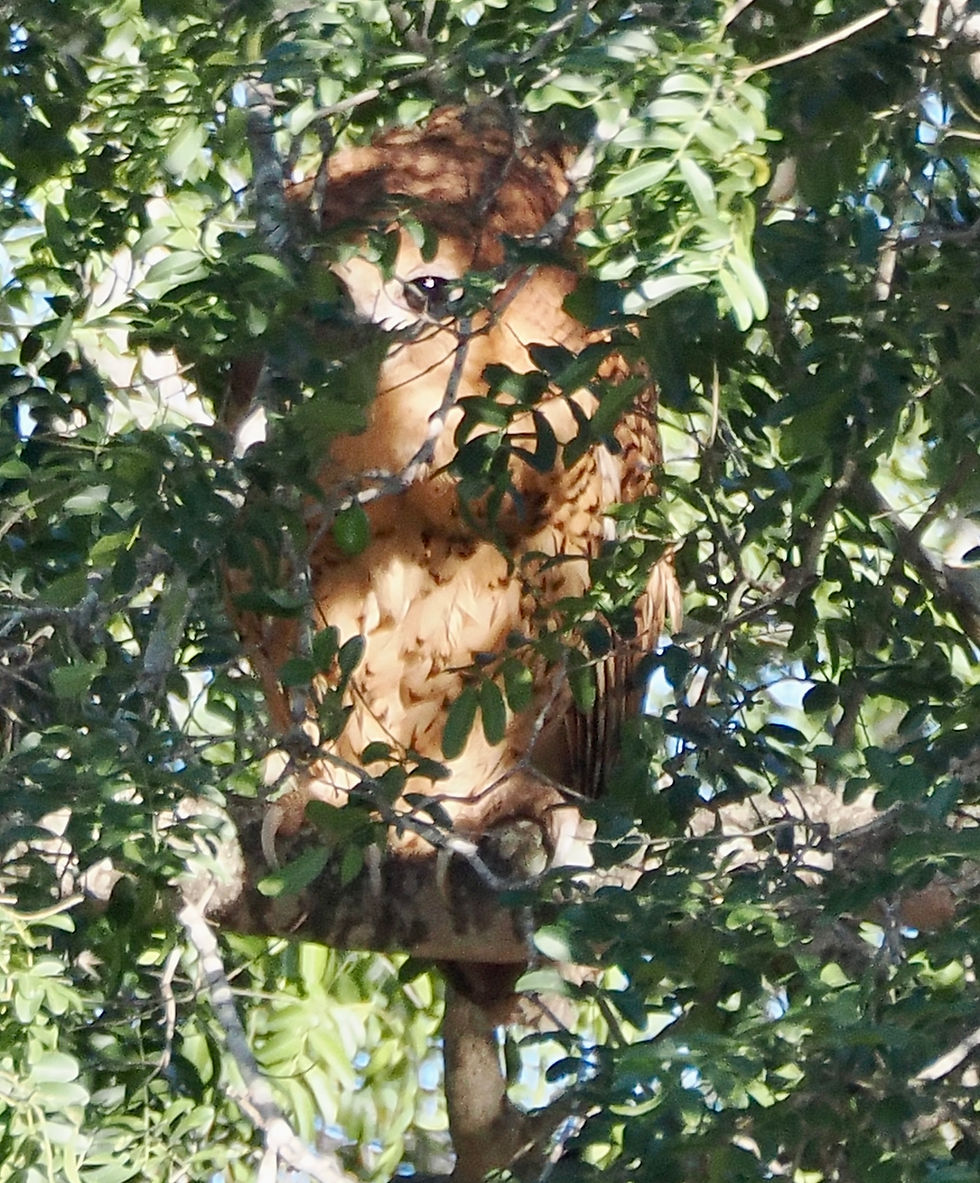
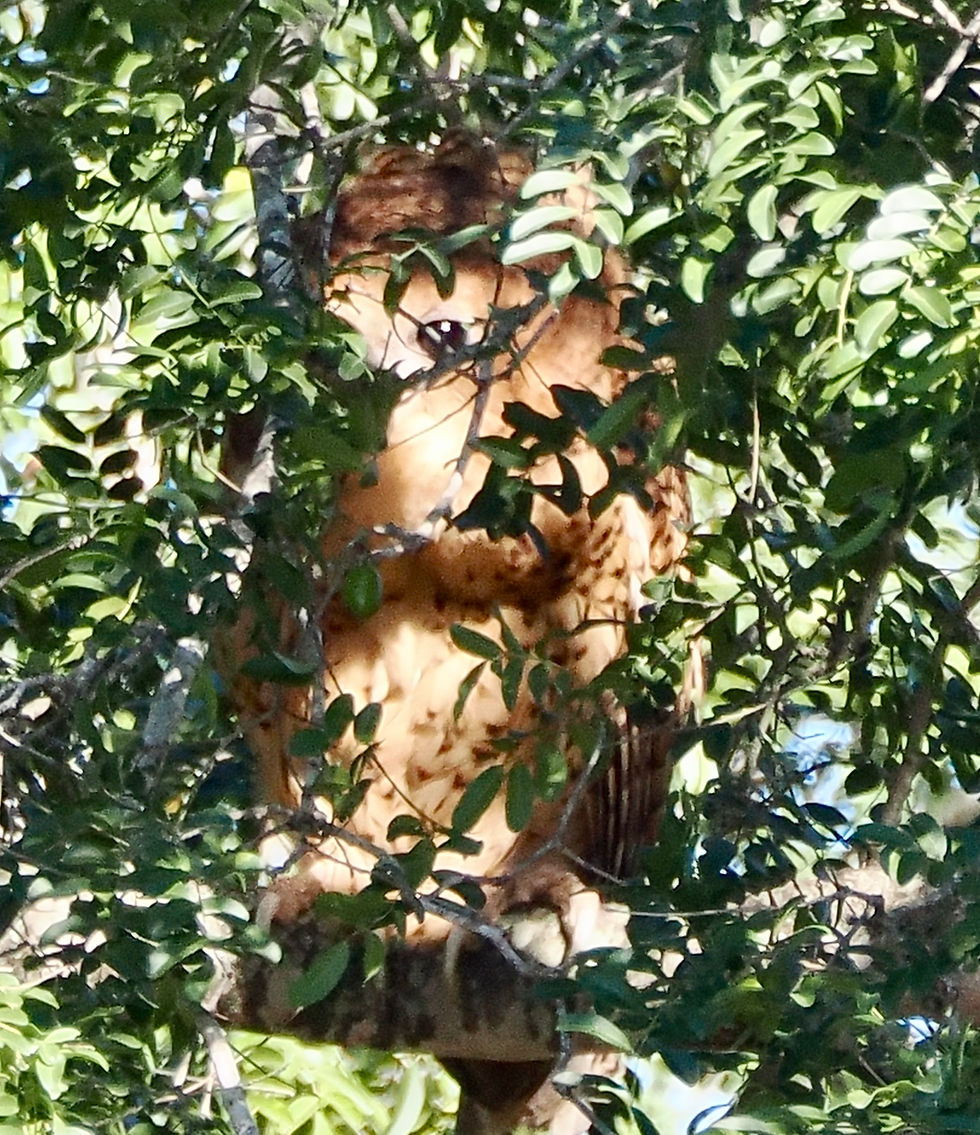

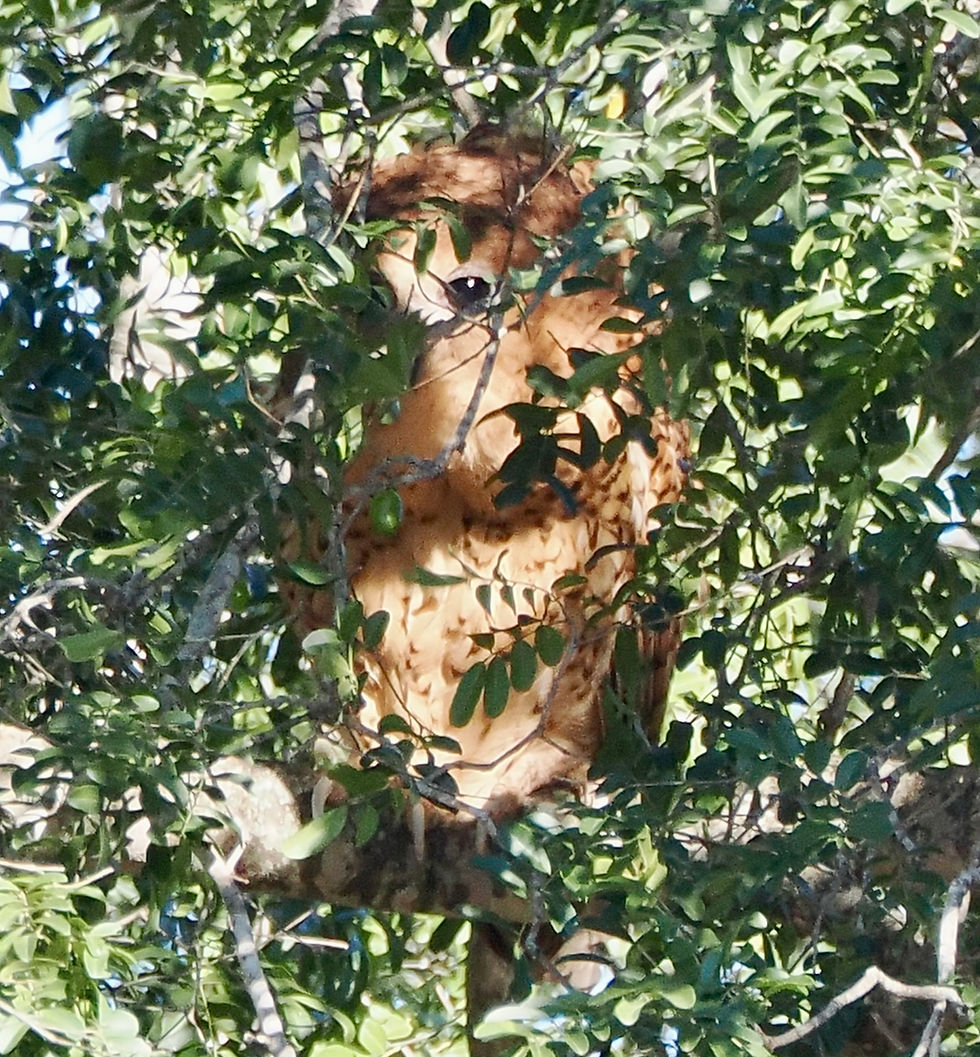
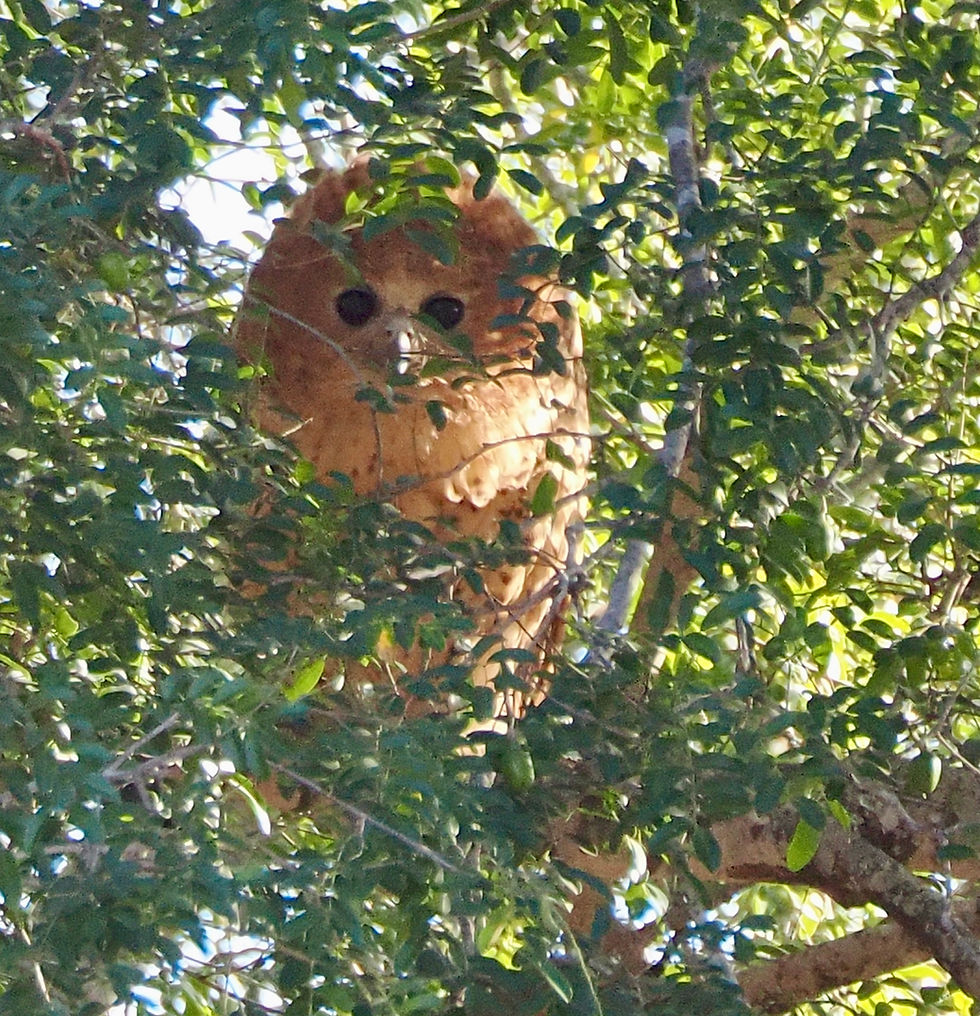

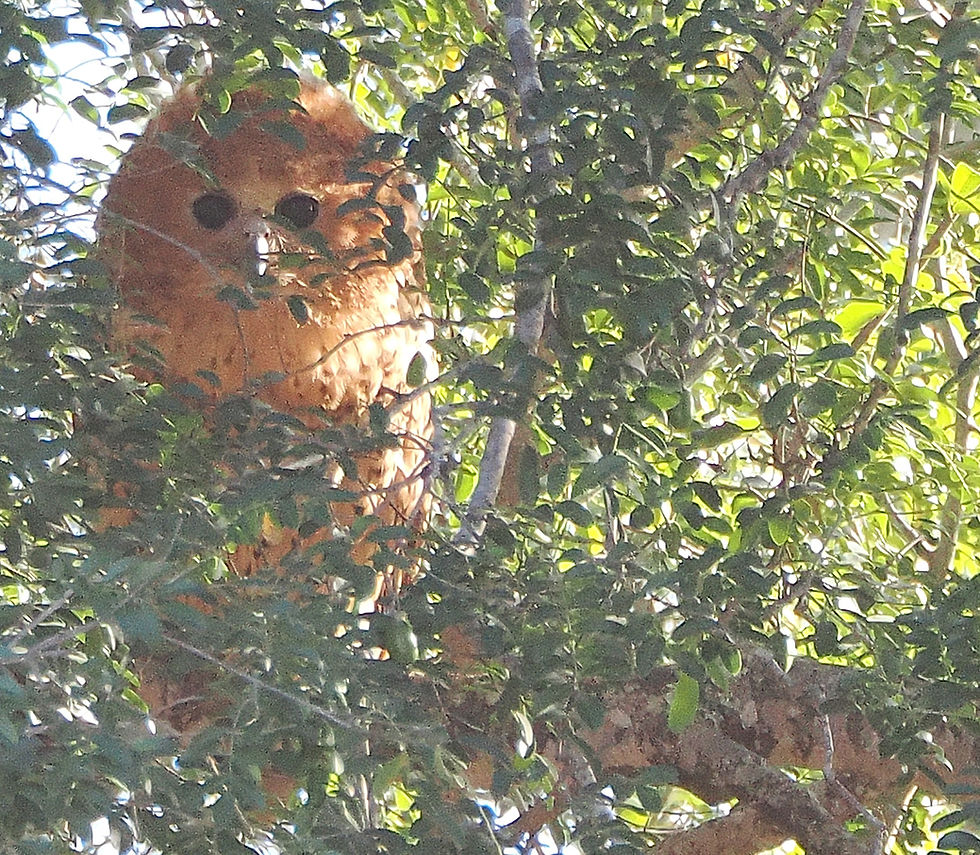




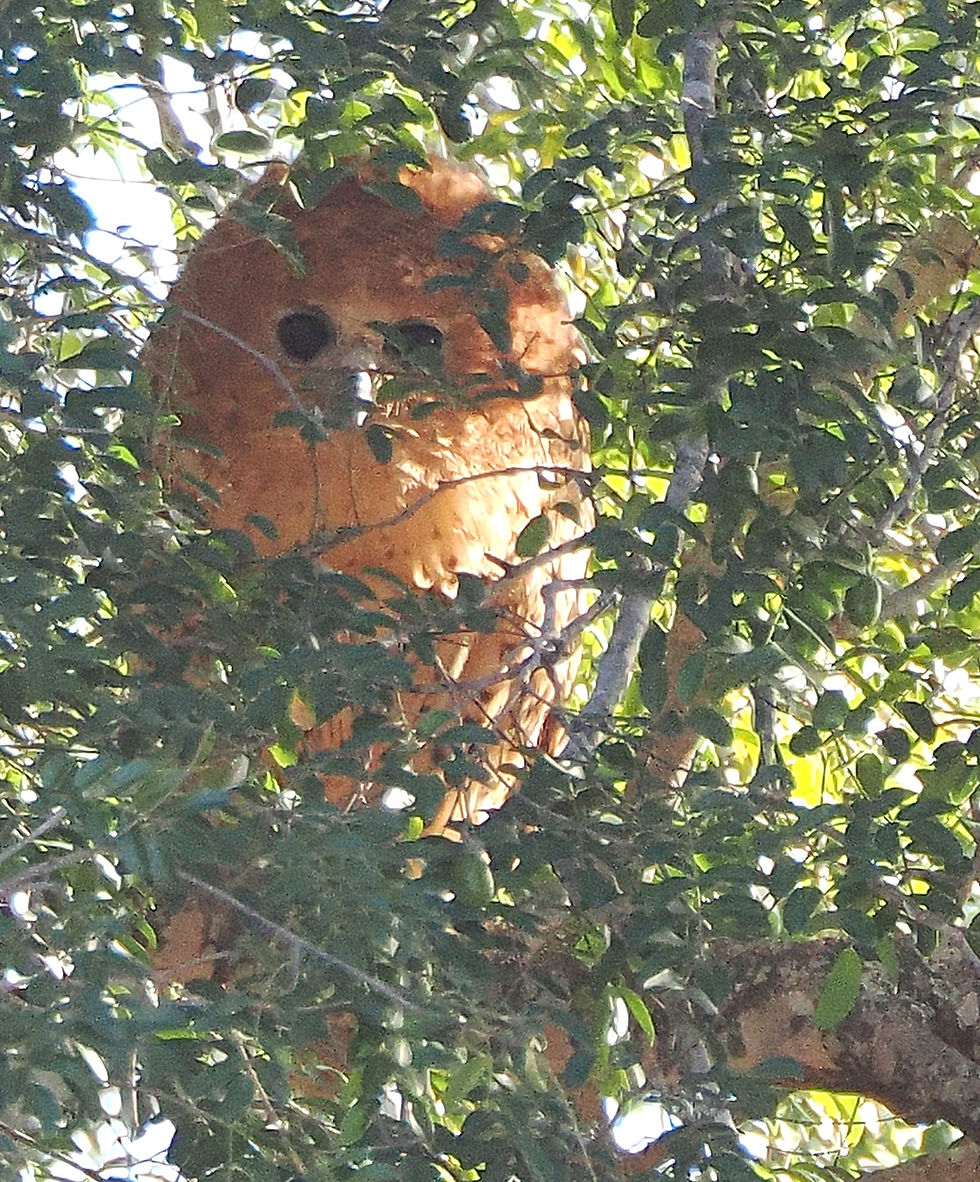
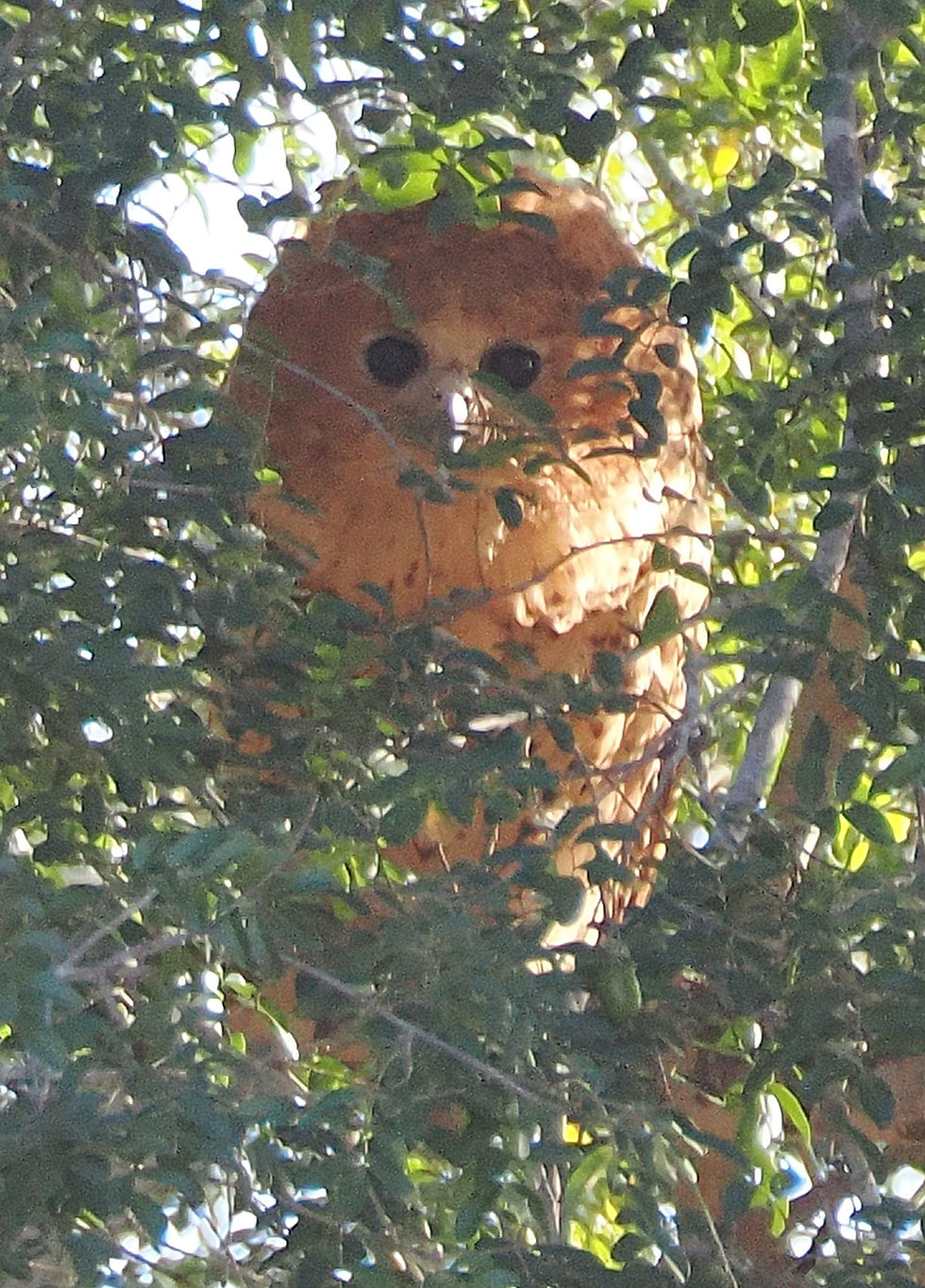
Fiery-necked Nightjar - this bird flew by while we were at dinner and I subsequently heard it vocalizing. Was happy to get these two species since we didn't do a night drive.
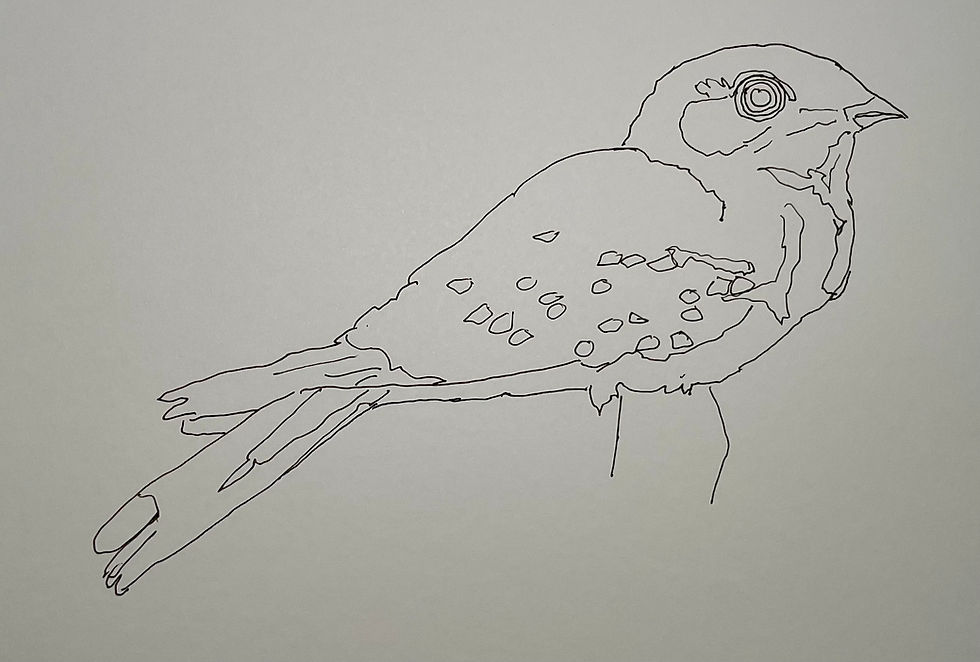
Black-throated Wattle-eye - This bird was not supposed to be where we were. We only found out about it because Andrew ran into a guide he knew. It was a quick and easy find, but quite exhilarating. Andrew kept saying he was Gobsmacked -- he doesn't gobsmack easily. Not a lifer for him, but only seen at the far north and far south of Kruger, not in Skukuza (Central Kruger) where we were. Got photos and heard her sing. Interesting only the female has a black throat -- the male just has a black "choker" around its neck. We're hoping a male shows up and they breed there. Probably the coolest sighting we had -- and it was on our last night!

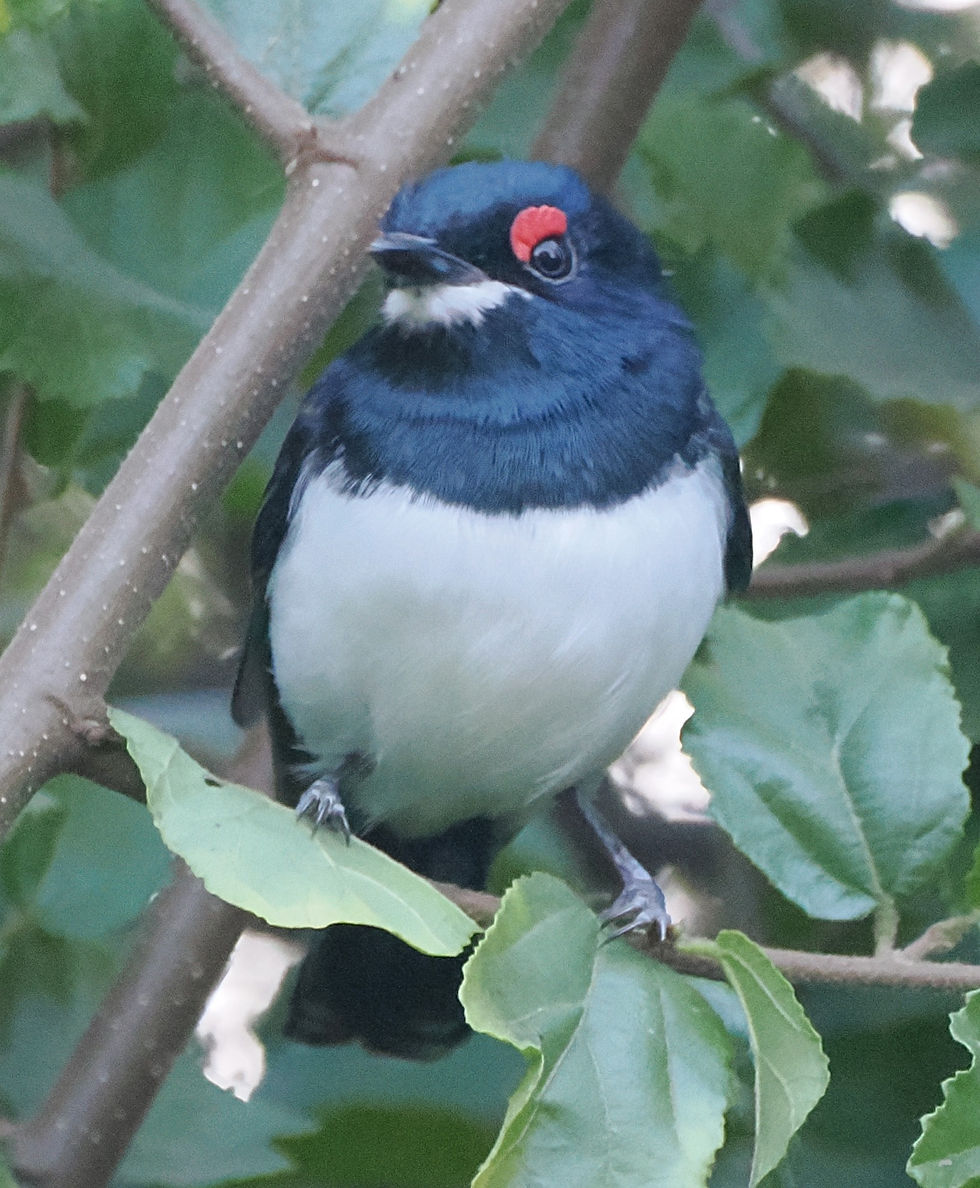

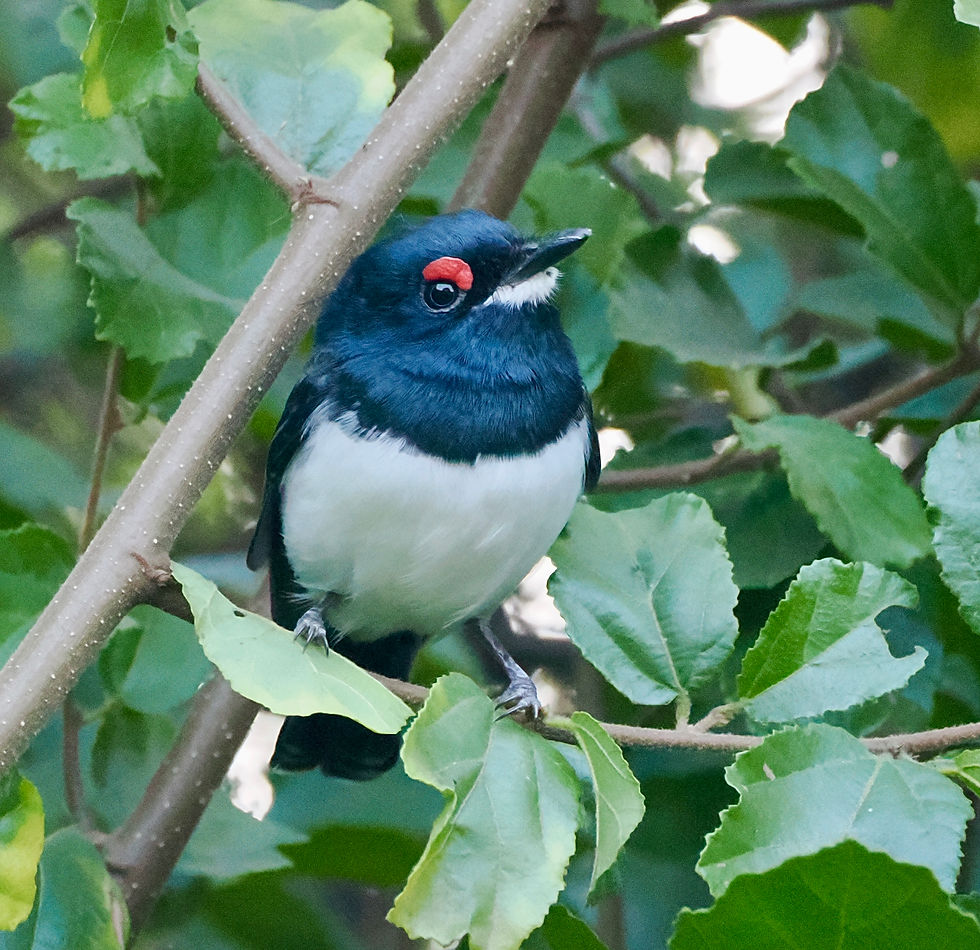
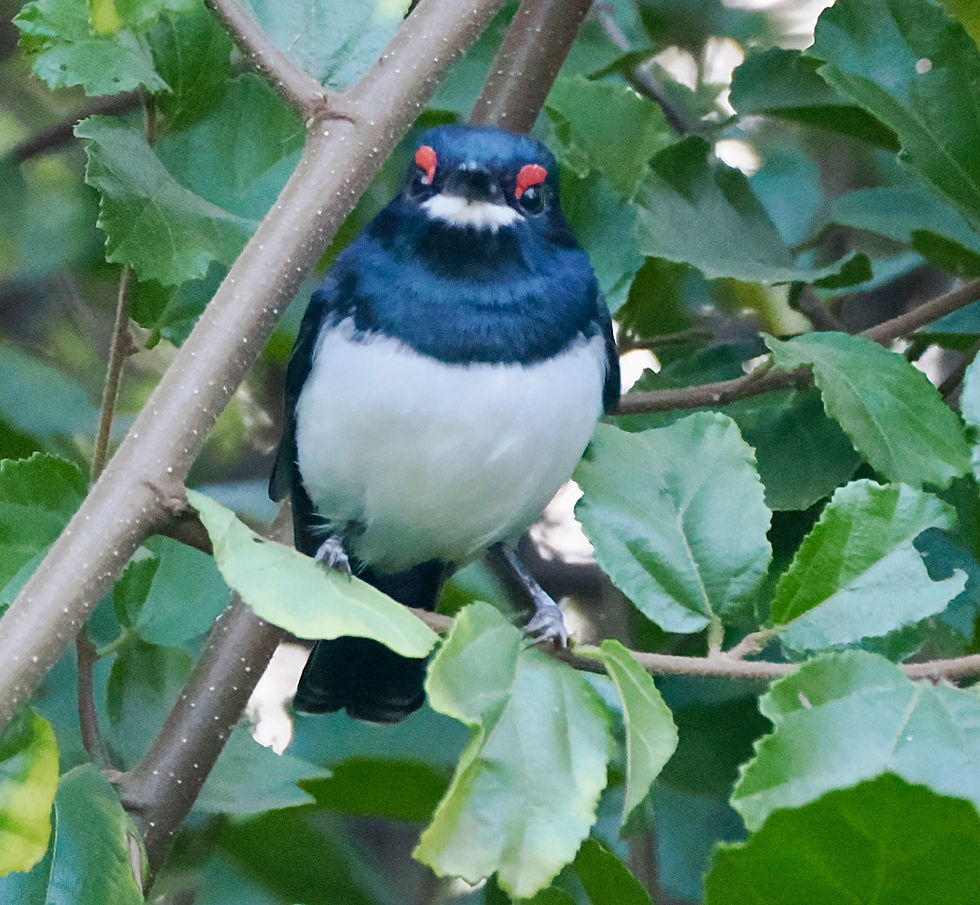
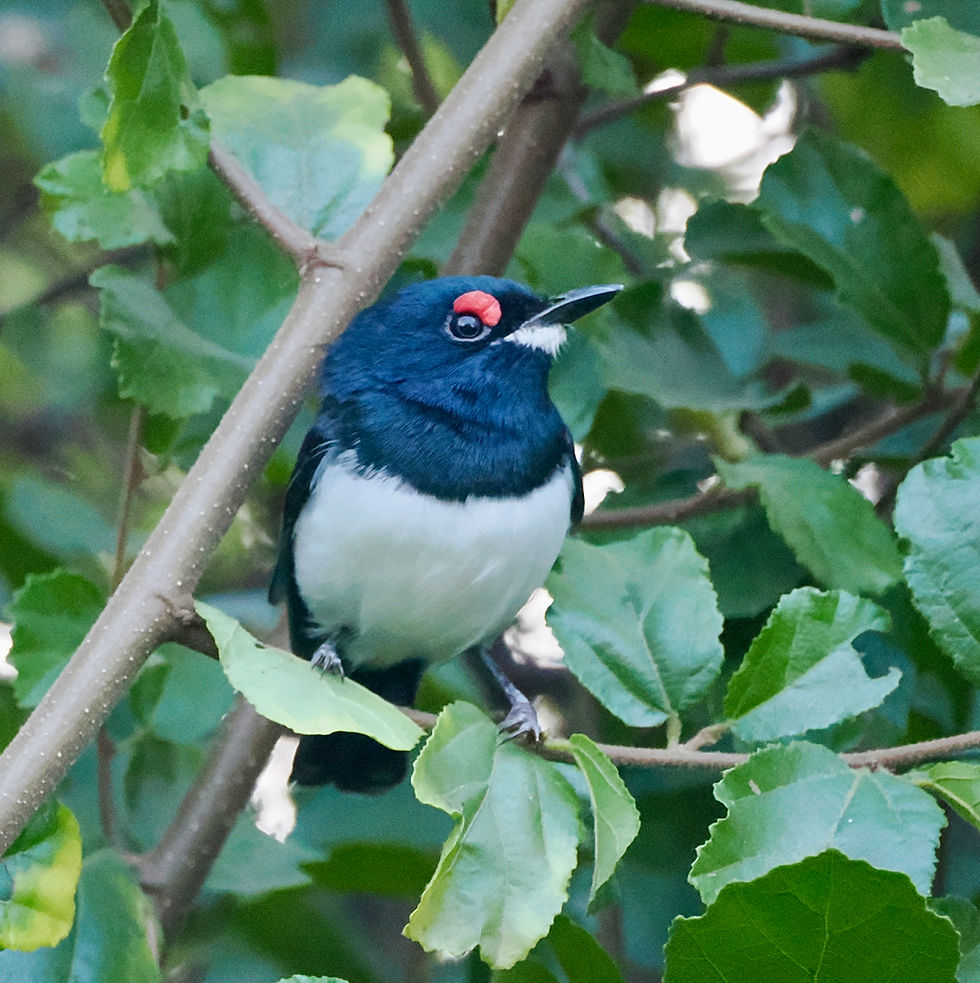
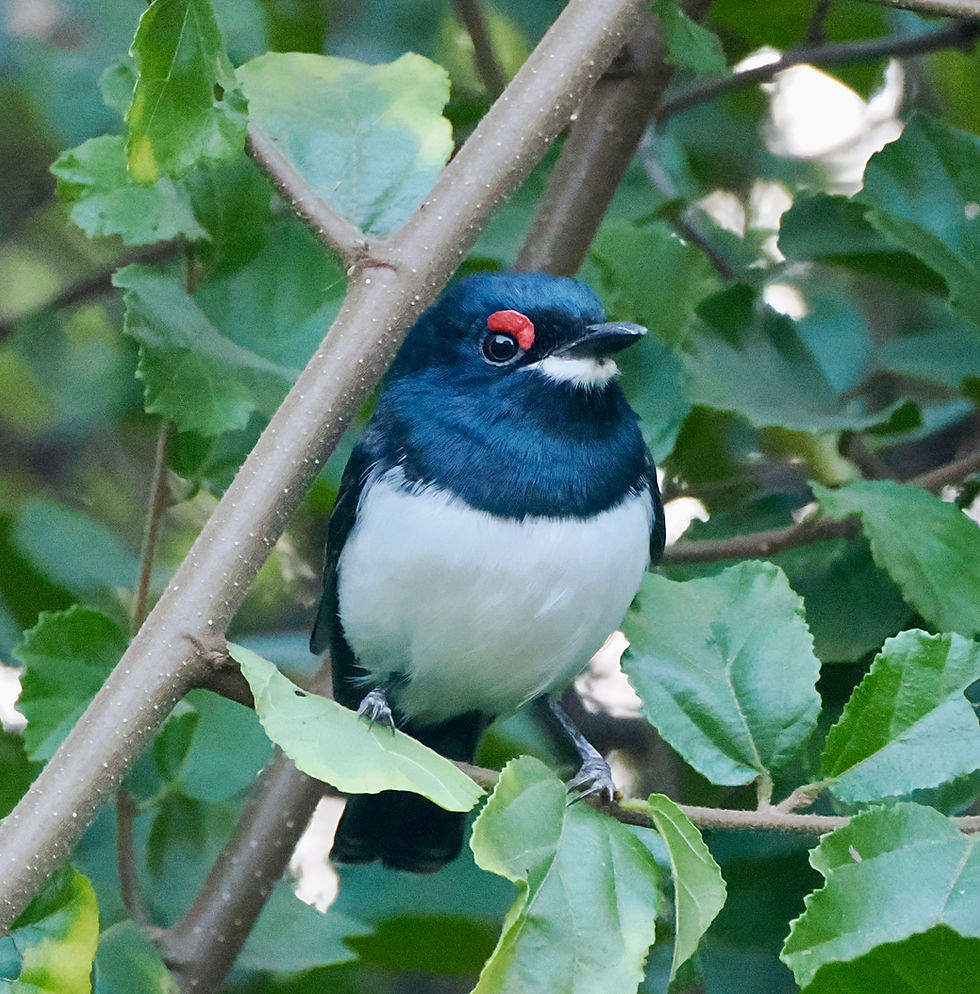

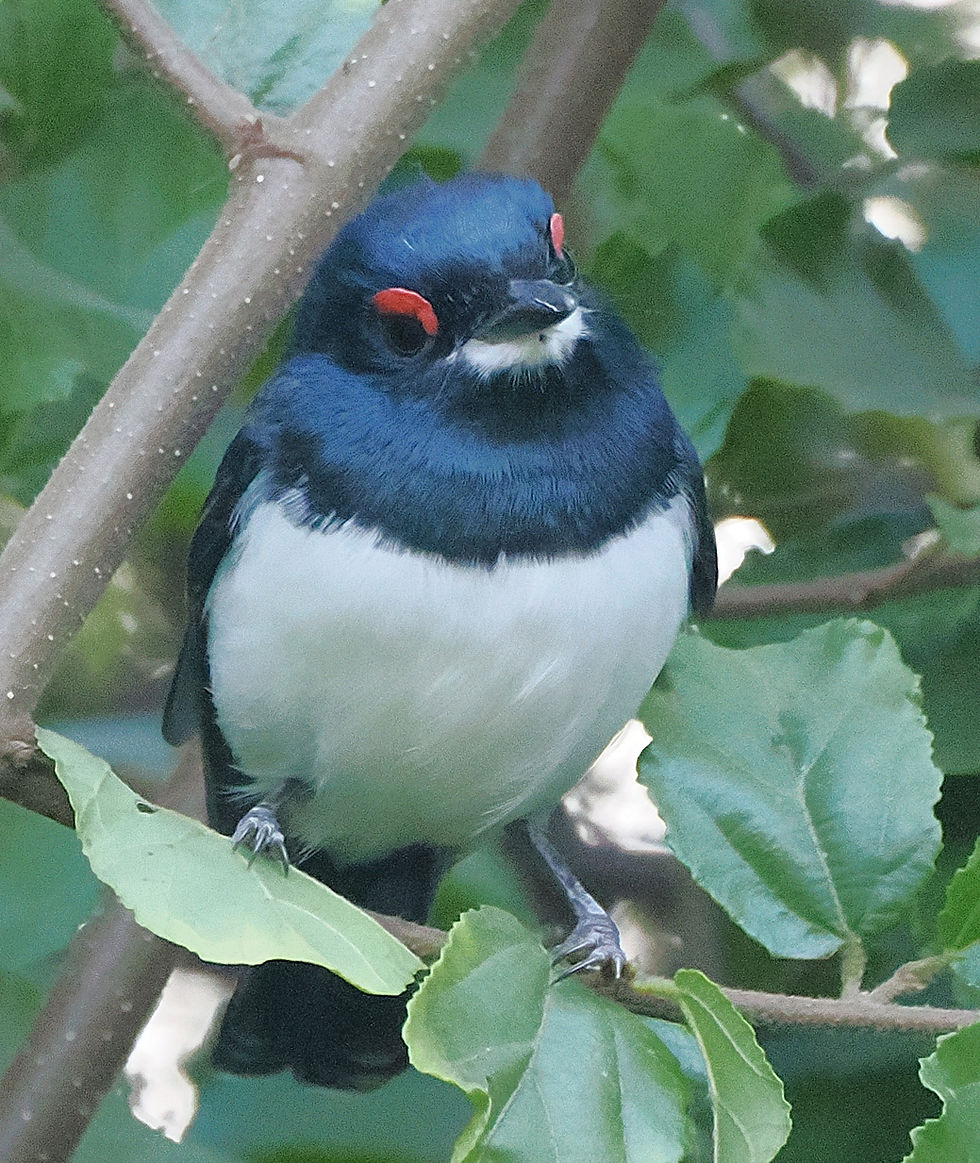
Crowned Hornbill - we were finishing up breakfast and just about to pack up and leave for the airport when Andrew heard it and it flew in. I didn't realize my SD card was full, so it took me a few minutes to reload and shoot -- I still managed to get a few decent photos of my last Lifer on this trip to Kruger.
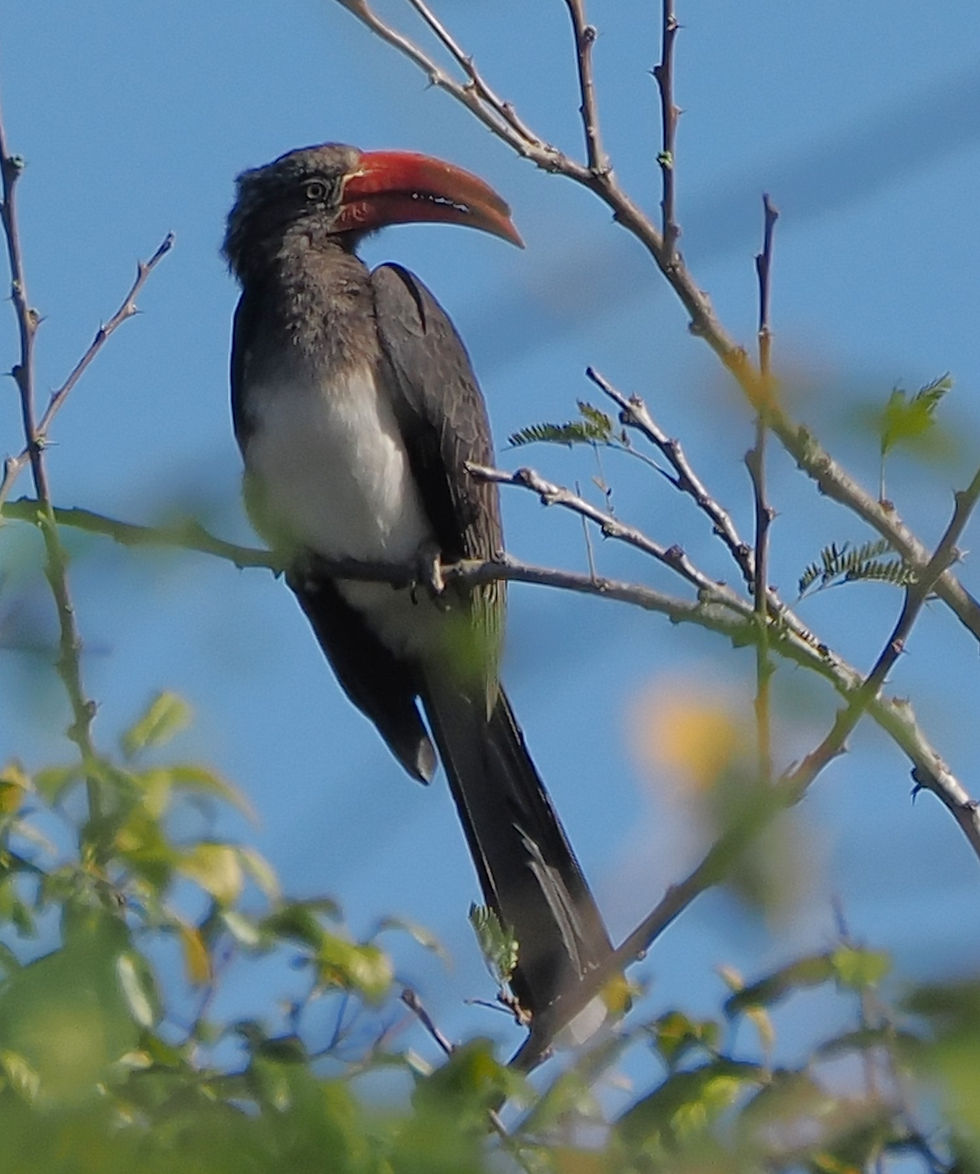


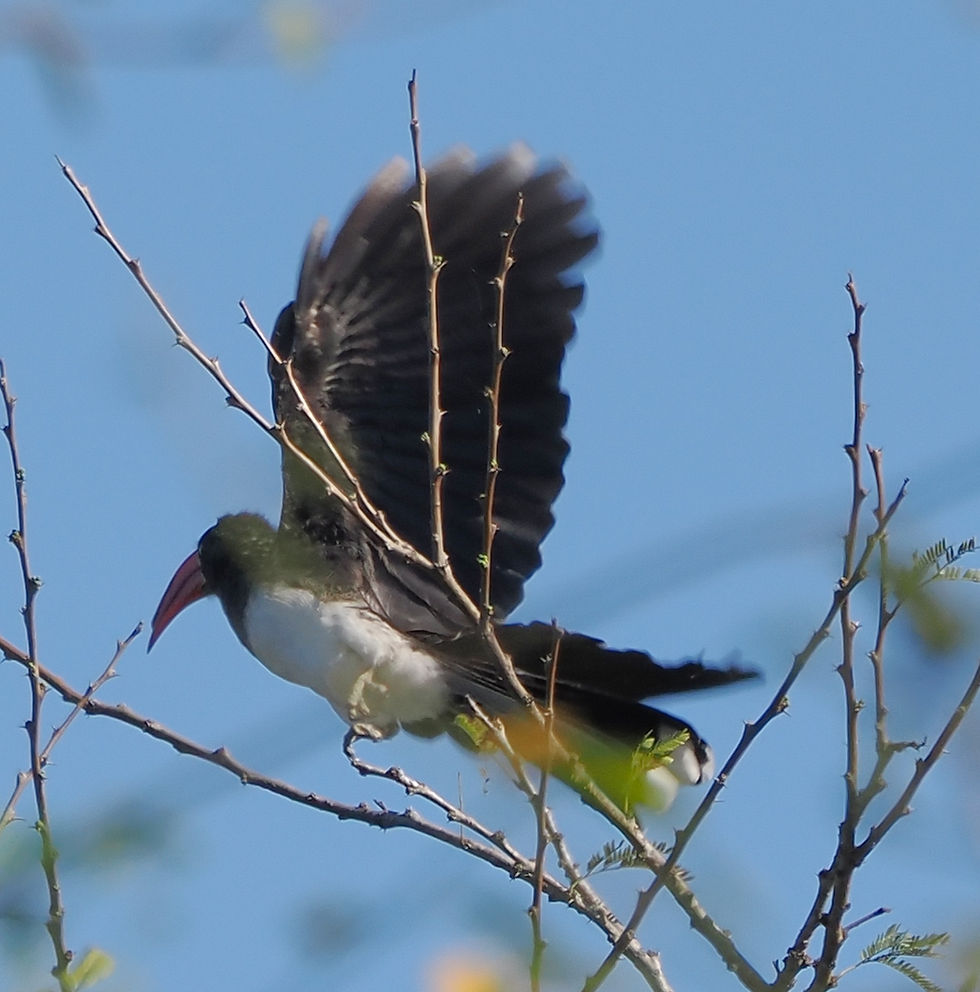
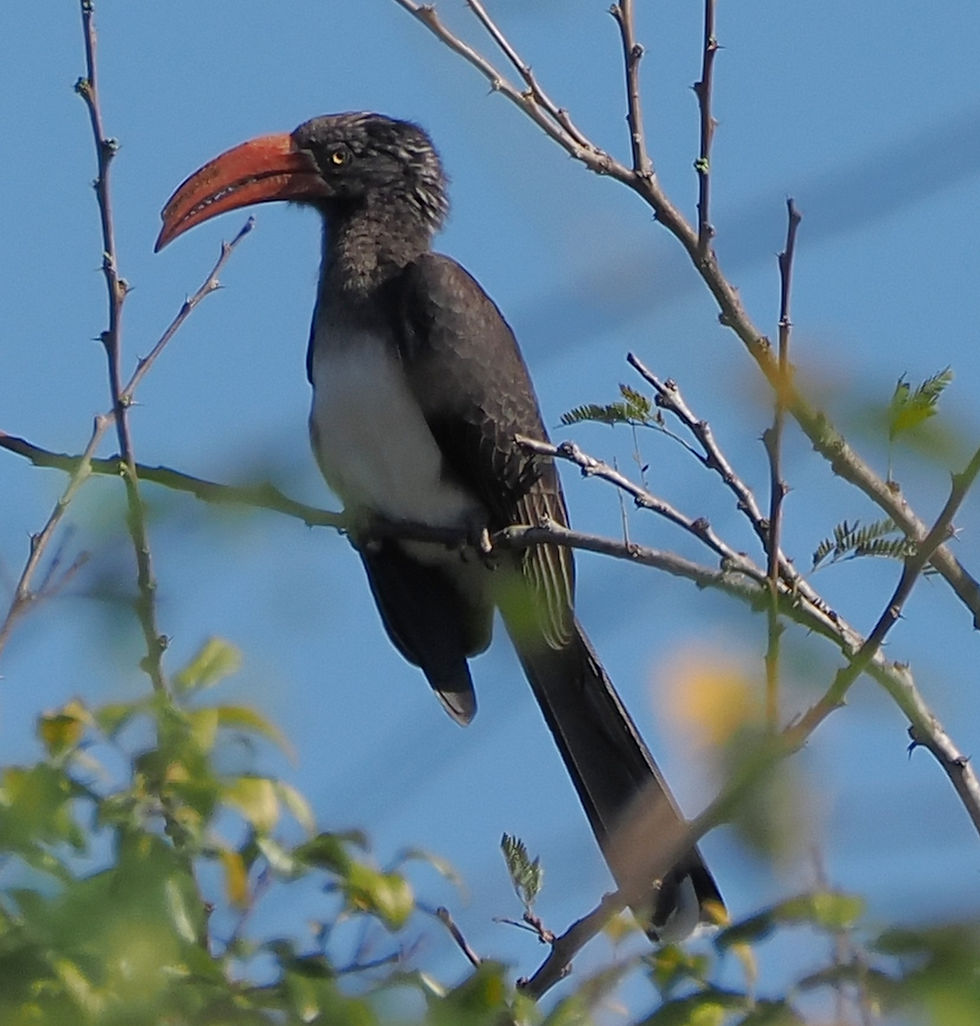

London Heathrow Airport - this was a bonus as I was not expecting to be here for 5 hours looking out the window. I did not have my camera out because I don't think photos through those windows would have been any good.
Red-Kite - a beautiful sleek bird flying over the hangers across from the terminal.
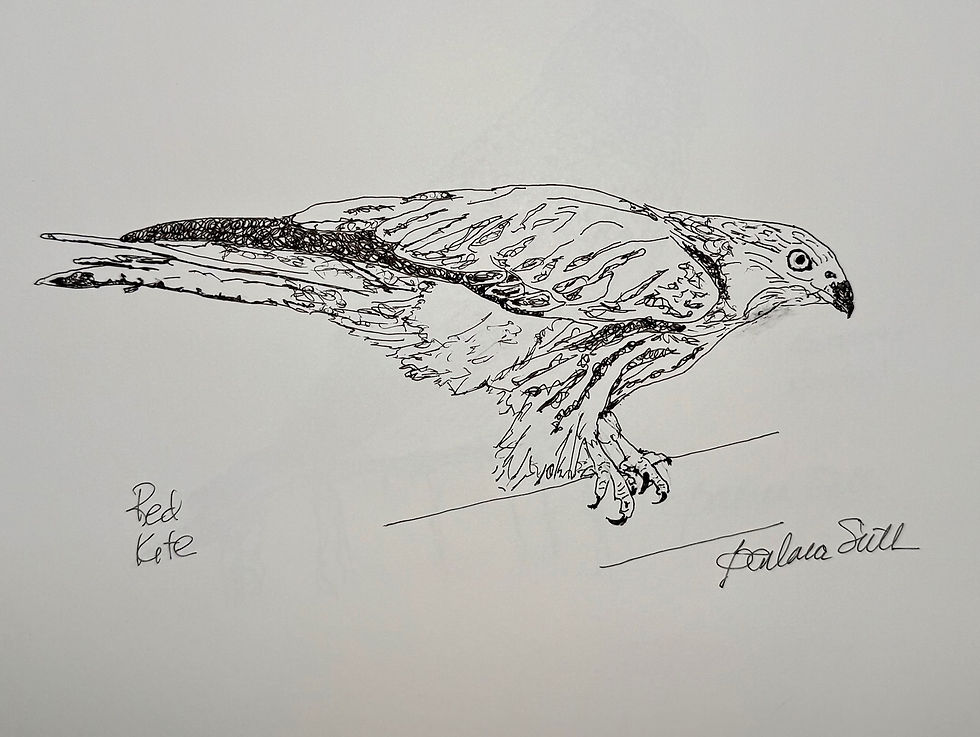
Eurasian Magpie - in the same vicinity as the Kite but closer to the ground mostly foraging in the grass.
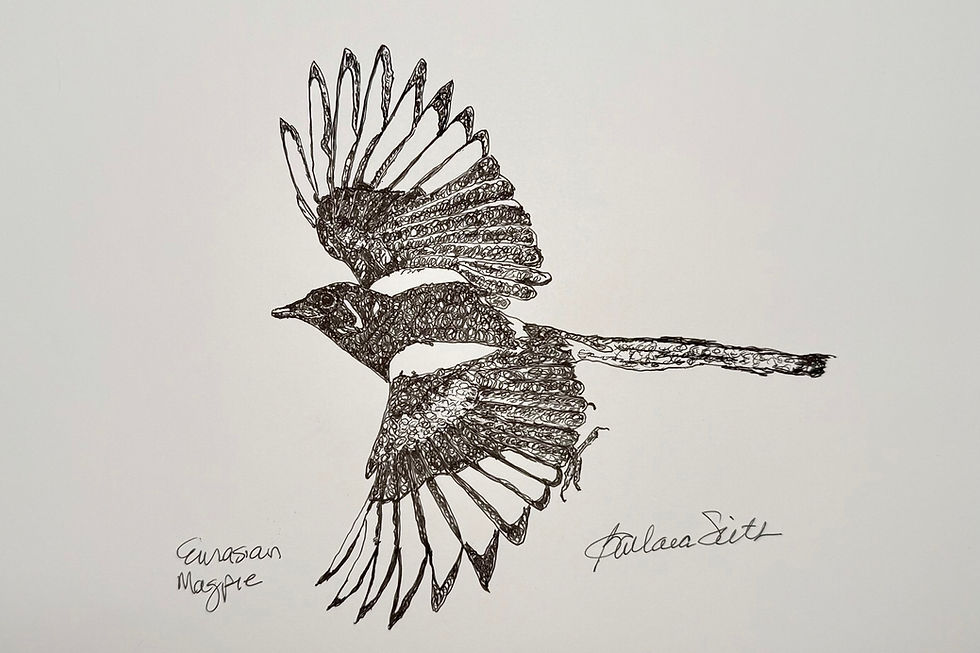
Eurasian Kestrel - Flying near the runway for my Boston flight.
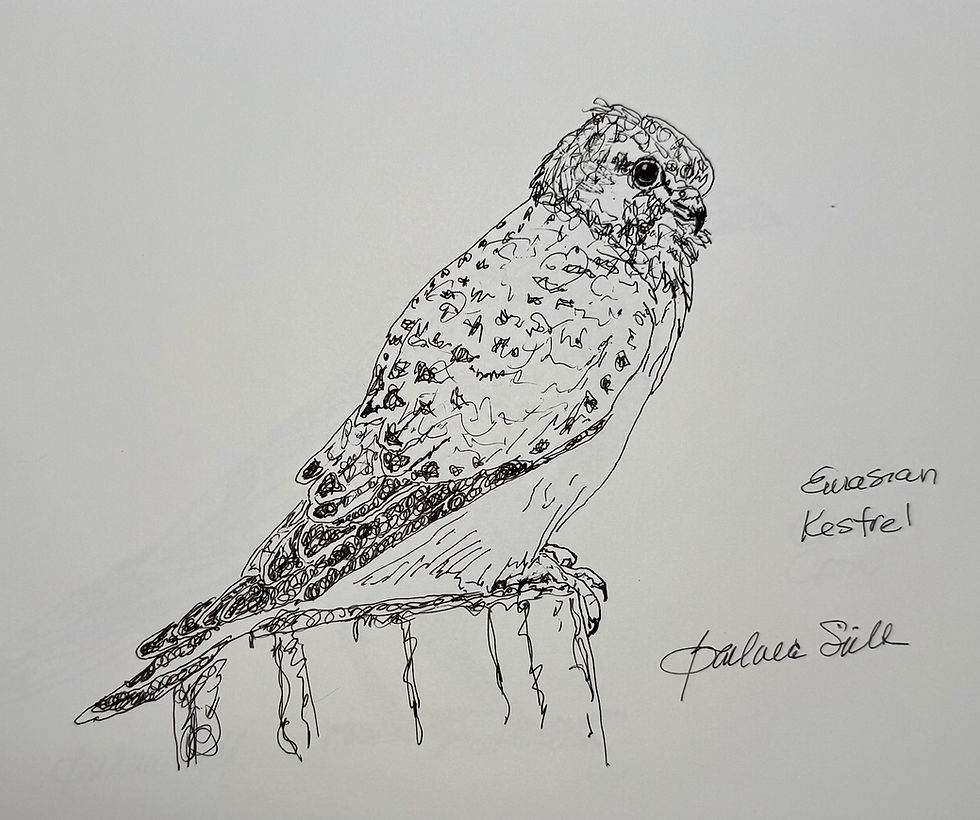
Carrion Crow - Foraging near the Eurasian Magpie near the hangers.

So that's it for lifers -- a nice haul for a trip to a place I've been too before.


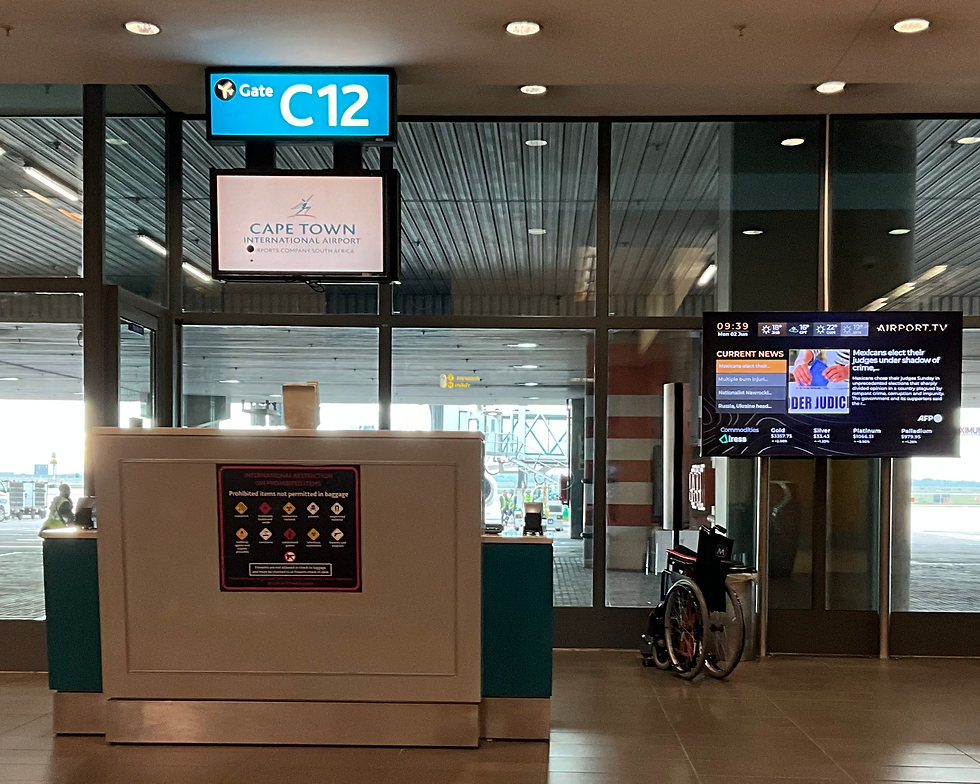
Comments